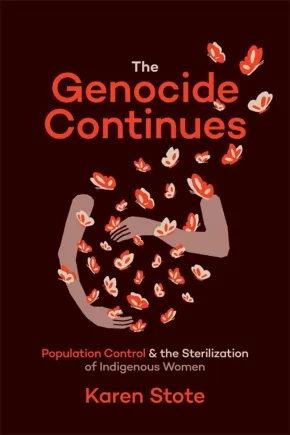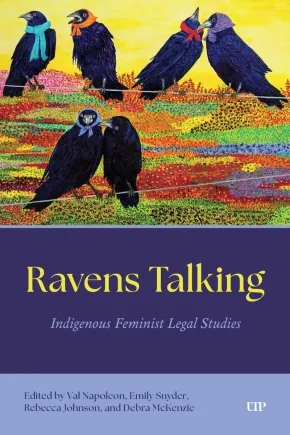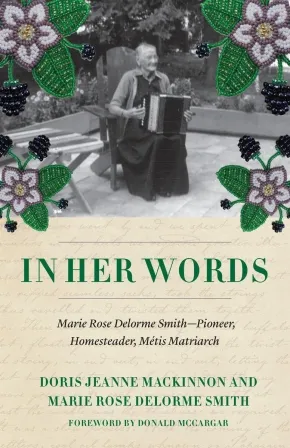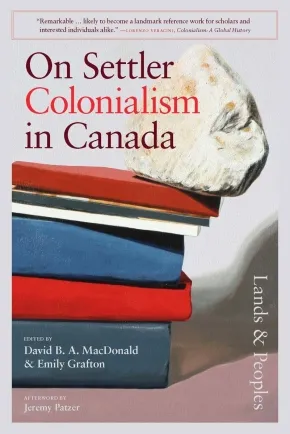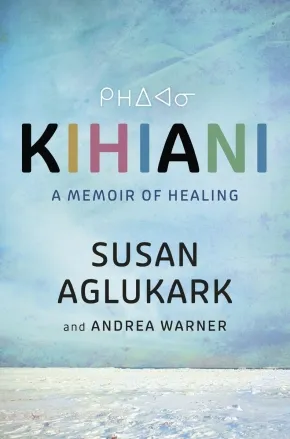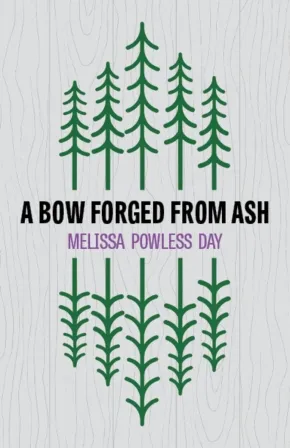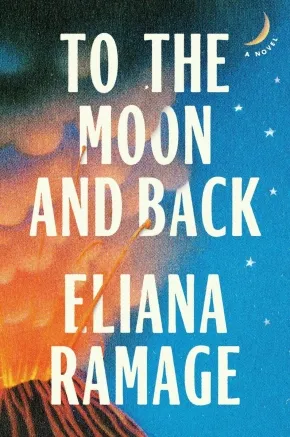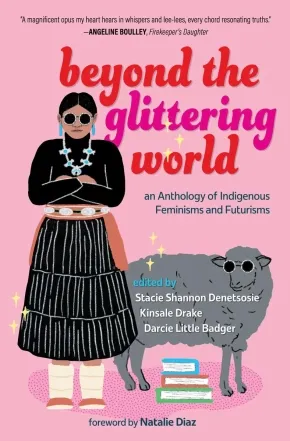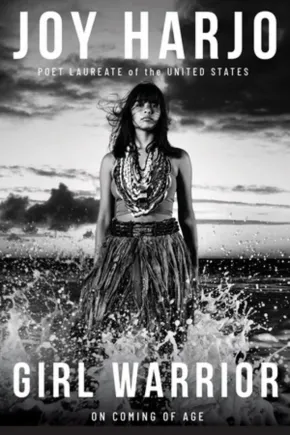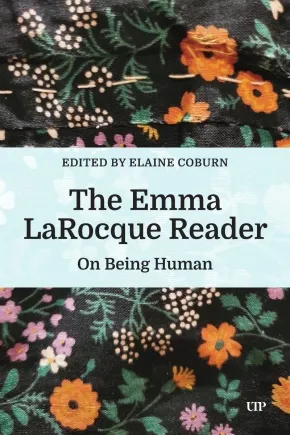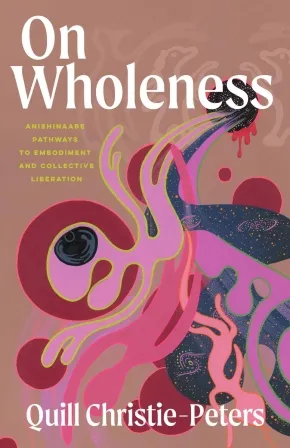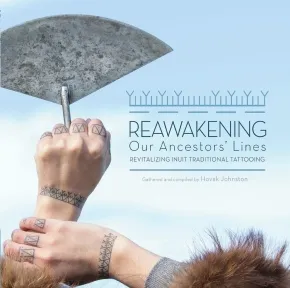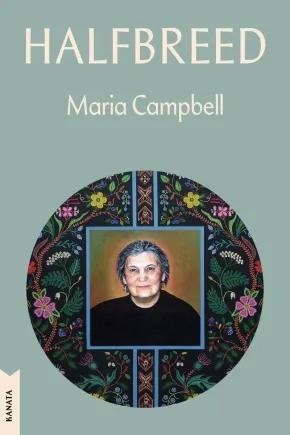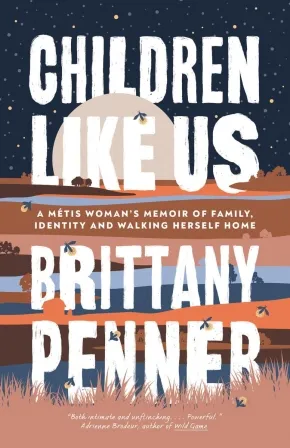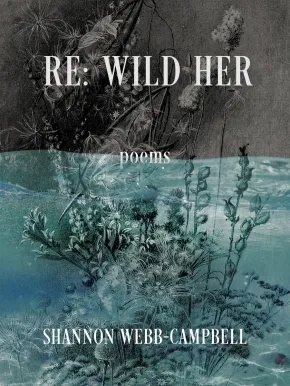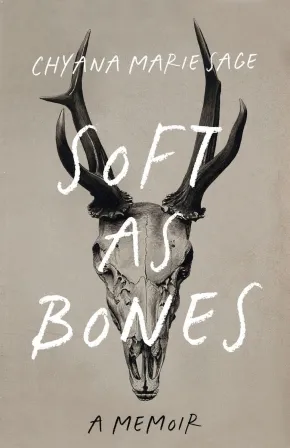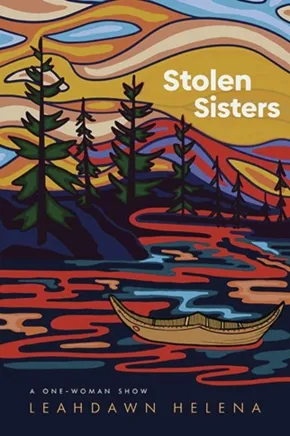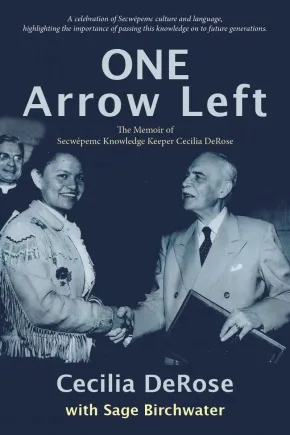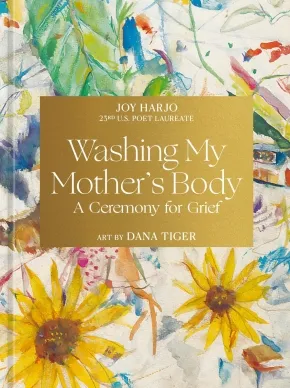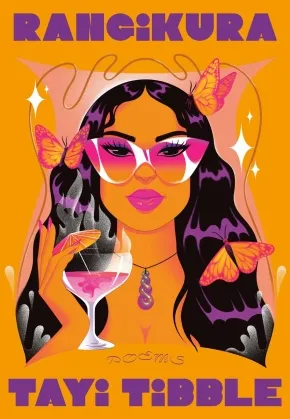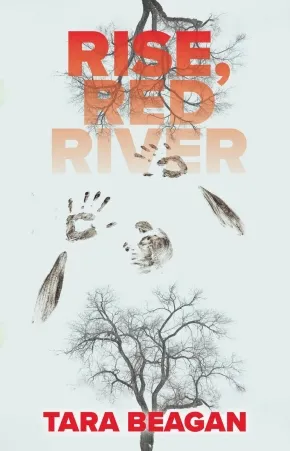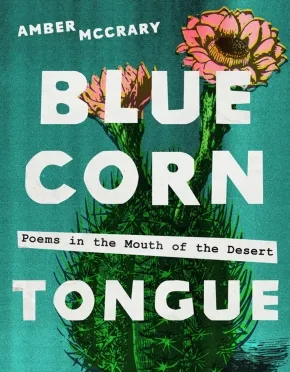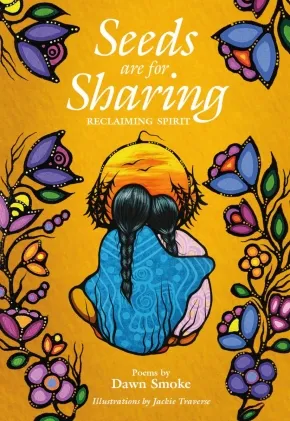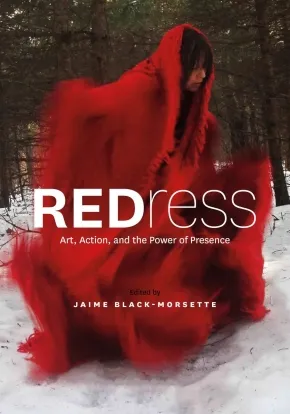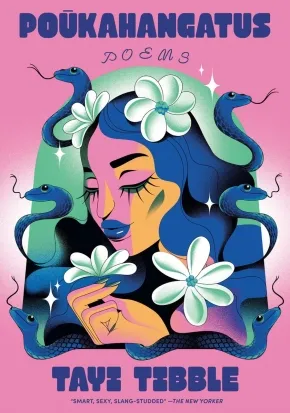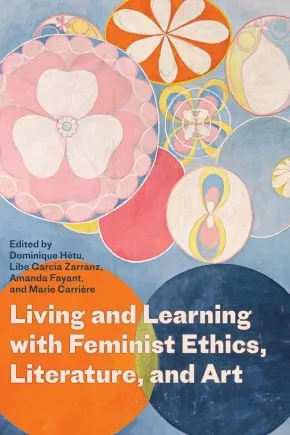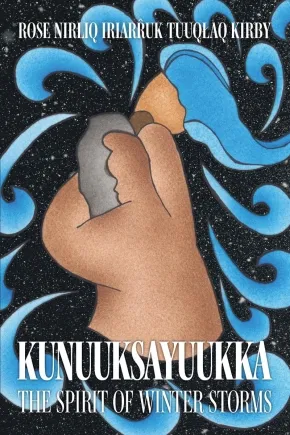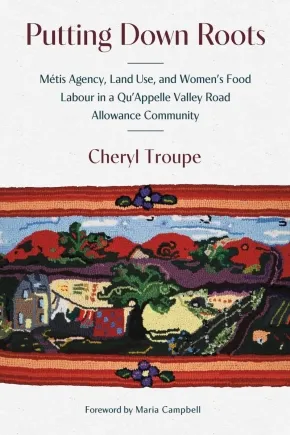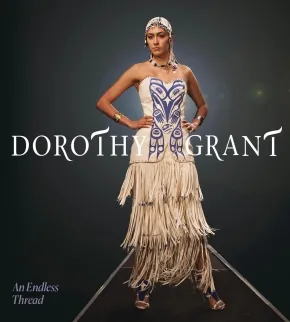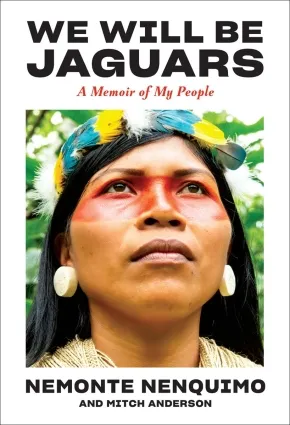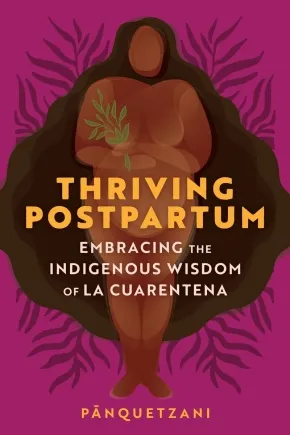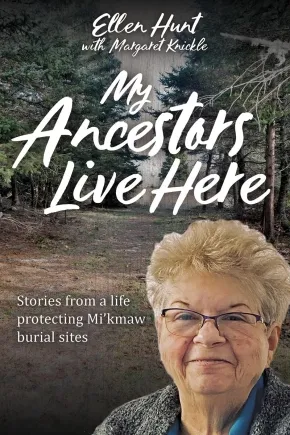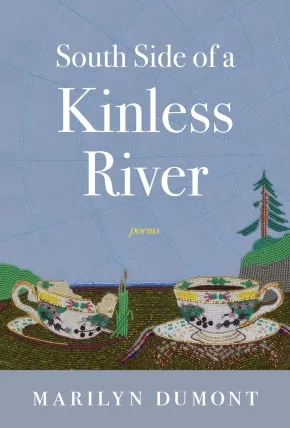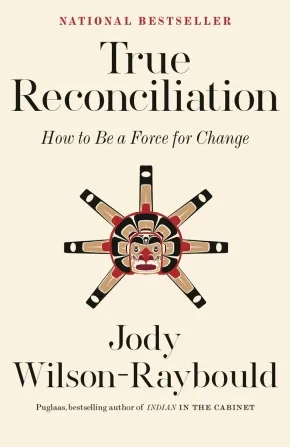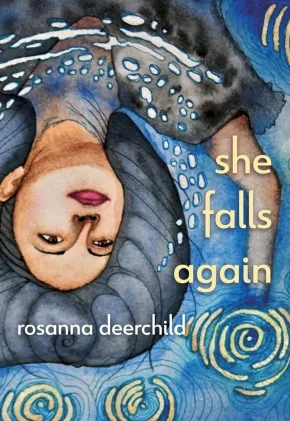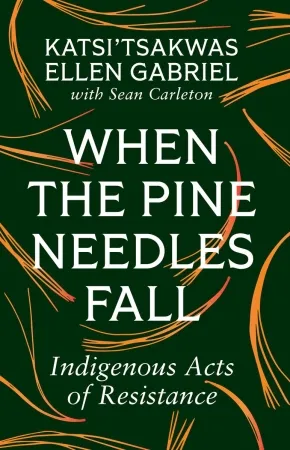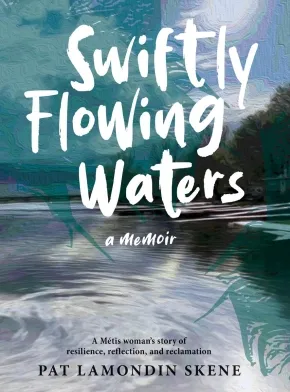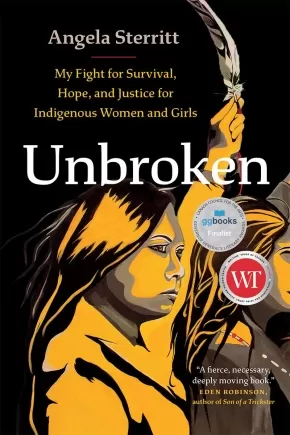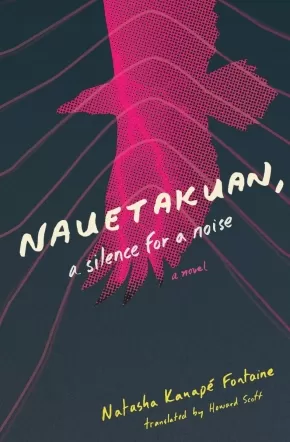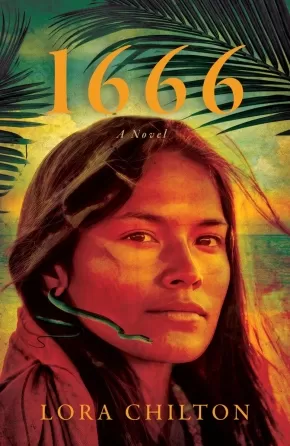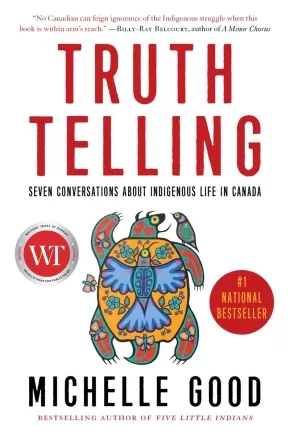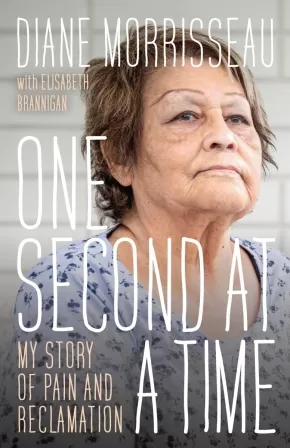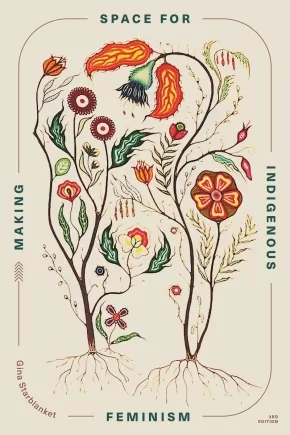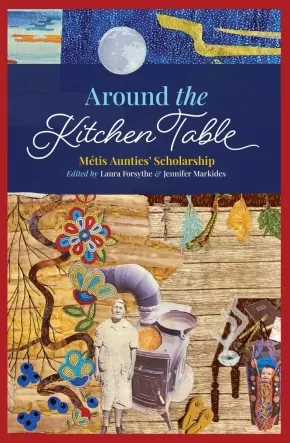
Women's Studies
1
-
15
of
181 Results;
Sort By
Go To
of 13
The Genocide Continues: Population Control and the Sterilization of Indigenous Women
$36.00
Format:
Paperback
Text Content Territories:
Indigenous Canadian;
Reading Level: N/A
ISBN / Barcode: 9781773637693
Synopsis:
Synopsis:
Indigenous Peoples in Canada have experienced coerced sterilization under eugenics legislation since the 1930s, and the violence has never stopped, even though eugenics fell into disrepute. In The Genocide Continues, Karen Stote traces the historical, political, economic and policy context informing the coerced sterilization of Indigenous women from 1970 onward. She shows how a powerful idea paved the way for the expanded violations of Indigenous People’s bodies and futures. That idea was population control — a concern with who occupied land and how resources were distributed — and it was a central thread guiding public health interventions from eugenics to family planning.
The Genocide Continues offers new insights to show how federal, provincial and corporate activities intersected to criminalize and regulate Indigenous reproduction. Saskatchewan, which first established family planning policies in the 1970s and is now the province with the highest number of Indigenous women coming forward with experiences of coerced sterilization, is Stote’s case study to demonstrate why family planning activities consistently targeted Indigenous women.
Stote weaves compelling archival evidence with principled storytelling to connect violence against Indigenous bodies to violence against Indigenous lands. Unless and until colonialism, extractivism and dispossession are addressed, a genocide against Indigenous peoples will continue.
Reviews
"Karen Stote has skillfully woven archival documents with evidence in policy, philanthropy, and medicine to show the repulsive side of Canada’s health care system as an assimilation tool. This book recounts the reasons why forced and coercive sterilization of Indigenous Peoples happened and is still happening." - Karen Lawford, Queen's University
Additional Information
288 pages | 6" x 9" | Paperback
Ravens Talking: Indigenous Feminist Legal Studies
$36.95
Editors:
Format:
Paperback
Text Content Territories:
Indigenous Canadian; First Nations; Cree (Nehiyawak); Haudenosaunee (Iroquois);
Reading Level: N/A
ISBN / Barcode: 9781487551476
Synopsis:
Synopsis:
While awareness of the sexual and gendered colonial violence faced by Indigenous women, girls, and 2SLGBTQI+ people has grown, the field of Indigenous law and beyond has yet to fully engage with Indigenous feminisms, gender, and sexuality in a sustained way. Ravens Talking challenges this gap, treating Indigenous feminisms as essential, insightful, and deeply transformative.
Through critical feminist analyses, this book examines key issues in Indigenous law, demonstrating how legal understandings shift when gender is consistently, meaningfully, and creatively engaged. The contributors to this collection confront the forms of power shaping these essential conversations and bring to the fore intergenerational Indigenous feminisms; Indigenous law and gender; the forms of expression and translation between and across legal and political worlds; and the rich array of disagreements and conflicts between Indigenous women. Ravens Talking intends to capture the complexities arising from Indigenous feminisms in living contexts to provoke questions and develop critical perspectives.
Both intellectually rigorous and practically grounded, Ravens Talking is a vital contribution encouraging dialogue on Indigenous legal traditions, justice, and sovereignty.
Educator Information
Chapters
1. Indigenous Women Talking: The Work of Indigenous Feminisms in the World
2. Introduction: Indigenous Feminist Legal Studies
3. Nêhiyaw Ceremony, Gendered Protocols, and Nêhiyaw Law
4. Understanding Indigenous Womxn’s Economic Sovereignty through Story
5. Giving Voice to Jigonsaseh: A Feminine Perspective on the Haudenosaunee Legal Order
6. What if Survivors Wrote the Laws? An Indigenous Feminist Audit of Tribal Sexual Assault in the United States
7. Deliberating Feminist Legal Strategies in R v Barton
8. Visualizing Violence Against Indigenous Women: Documentary Film as Disruption in Finding Dawn and American Outrage
9. Sovereign Refusals: Spending Time with Apak in the Journals of Knud Rasmussen
10. Thoughts and Questions and Questions
Additional Information
272 pages | 6.00" x 9.00" | Paperback
In Her Words: Marie Rose Delorme Smith—Pioneer, Homesteader, Métis Matriarch
$29.95
Format:
Paperback
Text Content Territories:
Indigenous Canadian; Métis;
Reading Level: N/A
ISBN / Barcode: 9781772035209
Synopsis:
Synopsis:
Part historical biography, part compilation of the written works of Mary Rose Delorme Smith (1861–1960), a prolific and accomplished Métis woman.
Born into a prominent fur-trading family and remembered as a community builder and rancher, Marie Rose Delorme Smith (1861–1960) is seldom recognized as a writer and chronicler of Métis and Prairie history. Fluent in French, English, and likely Michif, Delorme Smith recorded a wealth of written records and stories throughout her long life, in the form of letters, published articles, unpublished manuscripts, and personal documents.
Donated to public archives following her death, these written works garnered some interest among scholars and biographers over the years, as prominent Indigenous women gradually found a place in the histories they had been left out of for generations. Delorme Smith became the subject of biographies and scholarly research, and she was finally recognized as a “National Historic Person” by the Canadian government in 2022. However, the recognition bestowed upon her rarely highlighted her own words, which reveal so much about her life, Métis history, and Prairie life in the late nineteenth and early twentieth centuries.
For the first time, historian and biographer Doris Jeanne MacKinnon presents an extensive array of Delorme Smith’s writings, preserved verbatim, and puts them in historical and social context. This fascinating collection of documents from a bygone era reveals the strength, intellect, and leadership of a fascinating Métis martriarch.
Additional Information
276 pages | 5.50" x 8.50" | b&w photographs | Paperback
On Settler Colonialism in Canada: Lands and Peoples
$36.95
Editors:
Format:
Paperback
Text Content Territories:
Indigenous Canadian;
Reading Level: N/A
ISBN / Barcode: 9781779400642
Synopsis:
Synopsis:
An unflinching examination of the impacts of settler colonialism from first contact to the contemporary nation state.
On Settler Colonialism in Canada: Lands and Peoples is the first installment in a comprehensive collection investigating settler colonialism as a state mandate, a structuring logic of institutions, and an alibi for violence and death. The book examines how settler identities are fashioned in opposition to nature and how eras of settler colonialism have come to be defined. Scholars and thinkers explore how settlers understood themselves as servants of empire, how settler identities came to be predicated on racialization and white supremacy, and more recently, how they have been constructed in relation to multiculturalism.
Featuring perspectives from Indigenous, Black, mixed-race, and other racialized, queer, and white European-descended thinkers from across a range of disciplines, On Settler Colonialism in Canada: Lands and Peoples addresses the fundamental truths of this country. Essays engage contemporary questions on the legacy of displacement that settler colonialism has wrought for Indigenous people and racialized settlers caught up in the global implications of empire.
Asserting that reconciliation is a shared endeavor, the collection’s final section exposes the myth at the heart of Canada’s constitutional legitimacy and describes the importance of affirming Indigenous rights, protecting Indigenous people (especially women) from systemic violence, and holding the Canadian settler nation state—which has benefited from the creation and maintenance of genocidal institutions for generations—accountable.
Reviews
“Remarkable...likely to become a landmark reference work for scholars and interested individuals alike.” — Lorenzo Veracini, author of Colonialism: A Global History
“Positive shared futures with all our relations depend on perpetual truth-telling and (re)conciliation. This book guides us through the dark and toward the light.”— David Garneau, author of Dark Chapters
"A thought-provoking and insightful ‘must read’ for all those seeking reconciliation based on truth, justice, and accountability.” — Paulette Regan, author of Unsettling the Settler Within and former research director for the Truth and Reconciliation Commission of Canada
"The truth will set you free, but first it will piss you off! That observation best describes the power of this fabulous book that every Canadian should read.”— Val Napoleon, Professor and Law Foundation Chair of Indigenous Justice and Governance, University of Victoria
Educator & Series Information
This book is part of the On Settler Colonialism in Canada series.
Table of Contents
Acknowledgements
Contributor Biographies
David B MacDonald and Emily Grafton, “Introduction: Critical Engagements with Canadian Settler Colonialism: Colonization, Land Theft, Gender Violence, Imperialism, and Genocide”
Section 1: Considering Violence and Genocide in the Canadian Settler State
Karine Duhamel, “I feel like my spirit knows violence: interrogating the language of temporality and crisis for missing and murdered Indigenous women, girls, and LGBTQ people.”
James Daschuck, “The Battleford hangings and the rise of the settler colonial state.”
David B MacDonald, “Match and Exceed: Why Recognizing Genocide in Canada is Only the First Step in Promoting Indigenous Self-Determination.”
Malissa Bryan, “Unsettled Arrivants: Imagining Black & Indigenous Solidarity Under Settler Colonialism.”
Angie Wong, “Labouring and Living in Canada: Early Chinese Arrivants and Making Settler Colonial Canada.”
Section 2: Logics of Empire, Colonialism, and Unsettlement
Liam Midzain-Gobin, “Imperial circulation, implicatedness and co-conspiracy, racialized interruptions of settler colonialism in Canada.”
Peter Kulchyski, “A Contribution to Periodizing Settler Colonial History in Canada”
Ajay Parasram, “Learning Settler Colonialism: Double Diaspora and Transnational Imperial Refraction.”
Andrew Woolford, “Settler natures: becoming settler against water.”
Section 3: Settler colonial society: Relating, Reckoning, and Unreconciliation
Chris Lindgren and Michelle Stewart, “Reckoning and Unreconciled: Neil Stonechild, Starlight Tours, and Racialized Policing in the Settler State.”
Fazeela Jiwa, “On shitheads and revolutionaries: claiming my displaced kin.”
Jerome Melancon, “Relying upon the Colonial Project: Francophone Communities in Minority Settings within the Bilingual Settler Colonial State.”
Desmond McAllister, “Straddling Different Worlds.”
Bernie Farber and Len Rudner, “B’Chol Dor v’Dor: In each and Every Generation.”
Section 4: Asserting Indigenous Knowledges in settler colonial Canada
Solomon Ratt (poetry) “stolen childhood” and “asastîwa – They pile up”
Joyce Green, “Being and Knowing Home.”
Rebecca Major, “Surviving Institutions in Canada’s Polite Society.”
Paul Simard Smith, “On the Illegitimacy of the Canadian Constitutional Order.”
Emily Grafton, “Resistance and Resurgence: Asserting Indigenous Peoples’ Rights in Settler Colonial Canada.”
“Afterword,” Jeremy Patzer
Additional Information
384 pages | 6.02" x 9.01" | Paperback
Kihiani: A Memoir of Healing
$36.99
Format:
Hardcover
ISBN / Barcode: 9781443472944
Synopsis:
Synopsis:
Profoundly honest and moving, Kihiani is the uplifting story of an Inuk artist’s journey to healing and self-discovery
Born in Fort Churchill, Manitoba, but raised in Arviat, a predominantly Inuit community on the western edges of Hudson Bay, Susan and her six siblings grew up in a humble but loving home. But while living in Rankin Inlet, when she was eight years old, Susan’s life was disrupted by a life-changing event, a distinct separation that created a schism inside her for many years and from which she continues to heal.
At fifteen, she started writing poems that spilled out of her, and when Susan had the choice to leave her community, she grabbed it like a lifeline. Eventually, Susan was approached by a producer at CBC who was making a compilation album of Arctic artists and years later signed with a major label for her third album, This Child.
The disruption and milestones, the turmoil and joy, the devastation and healing—this is Susan Aglukark’s story of discovering her Inuk self.
Additional Information
272 pages | 6.00" x 9.00" | Hardcover
A Bow Forged from Ash
$21.95
Format:
Paperback
Text Content Territories:
Indigenous Canadian; First Nations; Anishinaabeg; Haudenosaunee (Iroquois); Kanyen'keha:ka (Mohawk);
ISBN / Barcode: 9781997508038
Synopsis:
Synopsis:
A Bow Forged from Ash is a journey of Indigenous reclamation. In poems that explore identity, belonging, responsibility and wholeness, Melissa Powless Day navigates her ties to the landscapes of Southwestern Ontario and the nations to which she belongs. Traversing lived experience, ancestral memory, family stories, and critical engagements with the Land, Powless Day pulls back the bow of language: her poems are poised, unyielding in their nanda-gikendang, their seeking, to voice complex stories about the messiness of returning home, a restoration of familial and community bonds generations in the making. Ultimately, A Bow Forged from Ash is a book that proves reclamation and resistance are inseparable: one cannot walk with pride in their Indigeneity without choosing to resist the colonial status quo.
Additional Information
112 pages | 5.50" x 8.50" | Paperback
To the Moon and Back: A Novel
$26.99
Format:
Paperback
Text Content Territories:
Indigenous American; Native American; Cherokee;
Reading Level: N/A
ISBN / Barcode: 9781668213131
Synopsis:
Synopsis:
One young woman’s relentless quest to become the first Cherokee astronaut will irrevocably alter the fates of the people she loves most in this tour de force of a debut about ambition, belonging, and family.
My mother took my sister and me, and she drove through the night to a place she felt a claim to, a place on earth she thought we might be safe. I stopped asking questions. I picked little glass pieces from my sister’s hair. I watched the moon.
Steph Harper is on the run. When she was five, her mother fled an abusive husband—with Steph and her younger sister in tow—to Cherokee Nation, where she hoped they might finally belong. In response, Steph sets her sights as far away from Oklahoma as she can get, vowing that she will let nothing get in the way of pursuing the rigorous physical and academic training she knows she will need to be accepted by NASA, and ultimately, to go to the moon.
Spanning three decades and several continents, To the Moon and Back encompasses Steph’s turbulent journey, along with the multifaceted and intertwined lives of the three women closest to her: her sister Kayla, an artist who goes on to become an Indigenous social media influencer, and whose determination to appear good takes her life to unexpected places; Steph’s college girlfriend Della Owens, who strives to reclaim her identity as an adult after being removed from her Cherokee family through a challenge to the Indian Child Welfare Act; and Hannah, Steph and Kayla’s mother, who has held up her family’s tribal history as a beacon of inspiration to her children, all the while keeping her own past a secret.
In Steph’s certainty that only her ambition can save her, she will stretch her bonds with each of these women to the point of breaking, at once betraying their love and generosity, and forcing them to reconsider their own deepest desires in her shadow. Told through an intricately woven tapestry of narrative, To the Moon and Back is an astounding and expansive novel of mothers and daughters, love and sacrifice, alienation and heartbreak, terror and wonder. At its core, it is the story of the extraordinary lengths to which one woman will go to find space for herself.
Reviews
“A story of decisions; right, wrong and everything in between, To the Moon and Back explores love and ambition and all its complicated messiness. With characters so perfectly rendered that you’ll want to hug them or give them a shake, Eliana Rampage explores what it means to belong in this immersive and exciting debut.” — Amanda Peters, author of The Berry Pickers (winner of the Carnegie Medal for Excellence)
“A soaring masterpiece that mixes the terror, care, betrayal, and death-defying love of family with deliciously abject lesbian drama and the beautifully self-destructive doggedness of possessing a singular dream. Every character in this novel will stay with you forever. I love this book.” —Casey Plett, award-winning author of A Dream of a Woma—
“A John Irving-esque tragicomic saga… This author is as ambitious as her protagonist: There are three novels worth of material here, all good. The moon or bust!” —Kirkus Review (starred review)
Additional Information
448 pages | 6.00" x 9.00" | Paperback
Beyond the Glittering World: An Anthology of Indigenous Feminisms and Futurisms
$29.50
Format:
Paperback
Text Content Territories:
Indigenous American; Native American;
Reading Level: N/A
ISBN / Barcode: 9798890920300
Synopsis:
Synopsis:
From adventures in Indigenous futurism to tales of first love, the stories and poems of Beyond the Glittering World proclaim and celebrate a rising generation of Native American storytellers.
Beyond the Glittering World brings together twenty emerging and established Native women writers and writers of marginalized genders, including Moniquill Blackgoose, Heid E. Erdrich, A.J. Eversole, Chelesa Hicks, and D. Daye Hunter. Immersing readers in worlds as varied as their authors, this collection presents an array of singular voices at their genre-bending, boundary-breaking, devastating, and joyous best.
Reviews
"An evocative compilation of voices pondering Indigenous futures and the shape of Indigenous love. Beyond the Glittering World holds a healthy dose of gender-bending, genre-challenging, future-hoping might. This anthology is a welcome addition to the field of Indigenous anthologies.”—DEBORAH JACKSON TAFFA, Whiskey Tender
Additional Information
240 pages | 5.25" x 8.00" | Paperback
Girl Warrior: On Coming of Age
$28.99
Format:
Hardcover
Text Content Territories:
Indigenous American; Native American; Muscogee (Creek);
Reading Level: N/A
ISBN / Barcode: 9781324094173
Synopsis:
Synopsis:
“To know ourselves is the most profound and difficult endeavor. Though we are all made of the same questions, we have individual routes to the answers, or to reframing the questions. Why is there evil in the world? Why do people suffer, and some more than others? Why are we here? What are we doing here? What happens after death? Does anything mean anything at all? Who am I and what does it matter?” writes Joy Harjo, renowned poet and activist, in this profound work about the struggles, challenges, and joys of coming of age.
In her best-selling memoir Poet Warrior, Harjo led readers through her lifelong process of artistic evolution. In Girl Warrior, she speaks directly to Native girls and women, sharing stories about her own coming of age to bring renewed attention to the pivotal moments of becoming including forgiveness, failure, falling, rising up, and honoring our vast family of beings.
Informed by her own experiences and those of her ancestors, Harjo offers inspiration and insight for navigating the many challenges of maturation. She grapples with parents, friendships, love, and loss. She guides young readers toward painting, poetry, and music as powerful tools for developing their own ethical sensibility. As Harjo demonstrates, the act of making is an essential part of who we are, a means of inviting the past into the present and a critical tool young women can use to shape a more just future. Lyrical and compassionate, Harjo’s call for creativity and empathy is an urgent and necessary work.
Reviews
"Joy Harjo combines the wisdom that was here long before Europeans showed up with the challenges of a woman’s life in the present. The result is inspired by the past and a personal preparation for the future."— Gloria Steinem, feminist activist and author
"What a beautiful and brilliant call to arms. I wish I had Joy Harjo’s words when I was young. This book is a lovely ode to her own bravery and by extension, all of ours. Girl Warrior gives possibility to young people (and all people) through Joy Harjo’s own coming-of-age narrative. More than about having waded through tumultuous waters and survived to not only tell the story but thrive inside the people we become on the other side. This book is simply a balm."— Jacqueline Woodson, National Book Award winner
Additional Information
176 pages | 5.37" x 8.00" | Hardcover
The Emma LaRocque Reader: On Being Human
$39.95
Editors:
Format:
Paperback
Text Content Territories:
Indigenous Canadian; Métis;
Reading Level: N/A
ISBN / Barcode: 9781487551889
Synopsis:
Synopsis:
Emma LaRocque was born in 1949 in Lac La Biche into a Cree-speaking Métis family. She grew up in a one-room, kerosene-lit log cabin built by her father. At the age of nine, she fought her parents to attend school, where she encountered English and the colonizer’s harmful stereotypes of Indigenous peoples. Confronting the contradictions of colonialism sparked her journey as a writer and scholar, as she sought to understand the dissonance between her identity and the world around her.
The Emma LaRocque Reader is a comprehensive collection of her most significant writings, poetry and prose, offering an intimate window into the mind of one of Canada’s foremost Indigenous scholars. Through her work, LaRocque provides profound insights into the intersections of colonialism, sexism, and racism in Canada, while also critically celebrating the beauty of her community and culture. In the afterword, she reflects on fifty years of challenging the colonial enterprise. A vital contribution to postcolonial literature, The Emma LaRocque Reader intertwines the personal and the political to explore what it means to be human, offering a powerful testament to Indigenous resistance, resilience, and vision.
This collection brings together the works of Métis scholar Emma LaRocque, offering a half-century of her poetry and prose, and shedding new light on Canada, colonialism, and Indigenous resistance.
Educator Information
Chapters
Foreword by Armand Ruffo
Preface by Elaine Coburn
Acknowledgments by Emma LaRocque
Acknowledgments of Permissions to Reprint
Introduction by Elaine Coburn
1975 A Personal Essay on Poverty (Excerpt from Defeathering the Indian)
1983 The Métis in English Canadian Literature
1988 On the Ethics of Publishing Historical Documents
1989 Racism Runs through Canadian Society
1990 Preface: Here Are Our Voices: Who Will Hear?
1990 Geese (poem)
1990 Nostalgia (poem)
1990 “Progress” (poem)
1990 The Red in Winter (poem)
1990 Incongruence (poem)
1990 Loneliness (poem)
1990 Beggar (poem)
1990 Tides, Towns, and Trains
1992 My Hometown, Northern Canada, South Africa (poem)
1993 Violence in Aboriginal Communities
1994 Long Way from Home (poem)
1996 The Colonization of a Native Woman Scholar
1996 When the Other Is Me: Native Writers Confronting Canadian Literature
2001 Native Identity and the Métis: Otehpayimsuak Peoples
2001 From the Land to the Classroom
2004 When the Wild West Is Me
2006 Sweeping (poem)
2006 Sources of Inspiration: The Birth of "For the Love of Words": Aboriginal Writers of Canada
2007 Métis and Feminist
2009 Reflections on Cultural Continuity through Aboriginal Women’s Writings
2010 Native Writers Reconstruct: Pushing Paradigms
2013 For the Love of Place – Not Just Any Place: Selected Métis Writings
2015 “Resist No Longer”: Reflections on Resistance Writing and Teaching
2016 Contemporary Métis Literature: Resistance, Roots, Innovation
2016 Colonialism Lived
2017 Powerlines (poem)
2022 Wehsakehcha, Comics, Shakespeare, and the Dictionary
2023 Afterword
Index
Additional Information
348 pages | 6.00" x 9.00" | Paperback
On Wholeness: Anishinaabe Pathways to Embodiment and Collective Liberation
$26.99
Format:
Paperback
Text Content Territories:
Indigenous Canadian; First Nations; Anishinaabeg; Ojibway; Saulteaux; Lac des Mille Lacs (Nizaatikoong);
Reading Level: N/A
ISBN / Barcode: 9781487013257
Synopsis:
Synopsis:
A brilliant exploration of the body as a site of settler colonial impact, centring embodied wholeness as a pathway to our collective liberation.
This fierce and enlightening book reimagines the way we understand settler colonialism-through the body itself. Anishinaabeg visual artist Quill Christie-Peters takes us on a journey that begins before birth, in a realm where ancestors and spirits swirl like smoke in the great beyond. But once we enter the world, our bodies are shaped and scarred by colonial forces.
In poetic and raw storytelling, Quill shares her own experiences of gendered violence and her father's survival of residential school, revealing how colonialism disconnects us from ourselves. Yet, through an Anishinaabeg lens, the body is more than just flesh-it extends to ancestors, homelands, spirit relations, and animal kin.
Through reflections on childbirth, parenting, creative practice, and expansive responsibility as pathways to wholeness, Quill explores how reconnecting with the body can be an act of resistance and healing. She shows that wholeness-despite pain and displacement-is not just possible but essential for liberation, not only for Indigenous people but for all of us.
Additional Information
288 pages | 5.50" x 8.50" | Paperback
Reawakening Our Ancestors' Lines: Revitalizing Inuit Traditional Tattooing (PB)
$24.95
Format:
Paperback
Text Content Territories:
Indigenous Canadian; Inuit;
Reading Level: N/A
ISBN / Barcode: 9781772275698
Synopsis:
Synopsis:
For thousands of years, Inuit practiced the traditional art of tattooing. Created the ancient way, with bone needles and caribou sinew soaked in seal oil, sod, or soot, these tattoos were an important tradition for many Inuit women, symbols etched on their skin that connected them to their families and communities. But with the rise of missionaries and residential schools in the North, the tradition of tattooing was almost lost. In 2005, when Angela Hovak Johnston heard that the last Inuk woman tattooed in the old way had died, she set out to tattoo herself in tribute to this ancient custom and learn how to tattoo others. What was at first a personal quest became a project to bring the art of traditional tattooing back to Inuit women across Nunavut, starting with Johnston’s home community of Kugluktuk. Collected in this beautiful book are moving photos and stories from more than two dozen women who participated in Johnston’s project. Together, these women have united to bring to life an ancient tradition, reawakening their ancestors’ lines and sharing this knowledge with future generations.
Awards
- 2018 NorthWords Book Prize Winner
Reviews
"This gorgeous photographic essay on the Inuit Tattoo Revitalization Project is a deeply personal and affirming work about learning and preserving traditions-and reclaiming what residential schools tried to destroy."-School Library Journal
Additional Information
72 pages | 10.00" x 10.00" | Paperback
Halfbreed: Kanata Classics Edition
$22.00
Format:
Paperback
Text Content Territories:
Indigenous Canadian; Métis;
Reading Level: N/A
ISBN / Barcode: 9780771026928
Synopsis:
Synopsis:
A new, fully restored edition of the essential Canadian classic.
An unflinchingly honest memoir of her experience as a Métis woman in Canada, Maria Campbell's Halfbreed depicts the realities that she endured and, above all, overcame. Maria was born in Northern Saskatchewan, her father the grandson of a Scottish businessman and Métis woman--a niece of Gabriel Dumont whose family fought alongside Riel and Dumont in the 1885 Rebellion; her mother the daughter of a Cree woman and French-American man. This extraordinary account, originally published in 1973, bravely explores the poverty, oppression, alcoholism, addiction, and tragedy Maria endured throughout her childhood and into her early adult life, underscored by living in the margins of a country pervaded by hatred, discrimination, and mistrust. Laced with spare moments of love and joy, this is a memoir of family ties and finding an identity in a heritage that is neither wholly Indigenous or Anglo; of strength and resilience; of indominatable spirit.
This edition of Halfbreed includes a new introduction written by Indigenous (Métis) scholar Dr. Kim Anderson detailing the extraordinary work that Maria has been doing since its original publication 46 years ago, and an afterword by the author looking at what has changed, and also what has not, for Indigenous people in Canada today. Restored are the recently discovered missing pages from the original text of this groundbreaking and significant work.
Educator & Series Information
This book is part of the Kanata Classics series, which celebrates timeless books that reflect the rich and diverse range of voices in Canadian literature.
Additional Information
224 pages | 5.50" x 8.23" | Paperback
Children Like Us: A Métis Woman's Memoir of Family, Identity and Walking Herself Home
$26.00
Format:
Paperback
Text Content Territories:
Indigenous Canadian; Métis;
Reading Level: N/A
ISBN / Barcode: 9780385688000
Synopsis:
Synopsis:
A Métis girl is adopted by a Mennonite family in this breathtaking memoir about family lost and found—for those who loved From the Ashes and Educated.
By the time Brittany Penner is seven years old, she has loved and lost twenty-one foster siblings who have come into her family and left—all of them Indigenous like her. "When will it be my turn?" she asks her mother time and time again. "When will I be taken away?" You won't be, she is told. You're adopted. You're here to stay. You're the lucky one.
On the day of her birth in 1989, near the end of the Sixties Scoop, Brittany was relinquished into the care of the government and adopted by a white Mennonite family in a small prairie town. Her name and where she came from are hidden from her; all she is told is that she is Métis. Her childhood is shaped by church, family, service and silence. Her family is continuously shifting as siblings arrive and depart, one by one. She knows that to stay, she has to force herself into the mold created for her. She must be obedient. Quiet. Good. No matter what.
Whenever she looks in the mirror, she searches her features, wondering if they've been passed down to her by her biological mother. She thinks, if she can find her mother, she'll find all the answers she's looking for. As Brittany moves into adulthood, she will uncover answers—but they will be more tangled than she could have imagined.
Children Like Us asks difficult questions about family, identity, belonging and cultural continuity. What happens when you find what you're looking for, but it can't offer you everything you need? How do you reckon with the truth of your own story when you've always been told you're lucky and should be grateful? What does it mean to belong when you feel torn between cultures? And how does a person learn to hold the pain and the grief, as well as the triumphs, the joys and the beauty, allowing none to eclipse the others?
Reviews
"Children Like Us is a luminous memoir about identity, loss and belonging. Adopted at birth by a white Mennonite family, Brittany Penner grows up straddling two worlds—one she knows and one that remains just out of reach. As she pieces together her origins, she reckons with the complexities of family, love and cultural displacement. Both intimate and unflinching, Children Like Us is a powerful exploration of what it means to know where you come from—and what it costs when that knowledge is withheld." —Adrienne Brodeur, nationally bestselling author of Wild Game
"An absolutely mesmerizing debut. It was a privilege to bear witness to Brittany Penner's story about intergenerational trauma, identity, and belonging. The kinds of complicated grief we so often experience in life are born out of the complexity of human relationships and our fierce ability to both hurt and heal one another. Penner explores this truth deftly, with wisdom, compassion and grace. I hope everyone reads this book." —Claire Bidwell Smith, author of The Rules of Inheritance
Additional Information
384 pages | 5.62" x 8.25" | Paperback
Re: Wild Her
$22.95
Format:
Paperback
Text Content Territories:
Indigenous Canadian; First Nations; Mi'kmaq (Mi'gmaq);
Reading Level: N/A
ISBN / Barcode: 9781771669337
Synopsis:
Synopsis:
In nature, rewilding restores biodiversity and ecosystems. In this new collection from award-winning poet Shannon Webb-Campbell, it is a form of Indigenous resurgence and pleasure.
Drawing upon ecology, traditional knowledge, and sexuality, Re: Wild Her is a personal and poetic awakening. In these pages artistry and nature are intertwined, speaking to the sensual musings of lovers in Paris, driftwood and death cycles, and the rise of wild swimming and cold dipping. Throughout, reclaiming one’s divine femininity is celebrated as a powerful act of resistance and rejuvenation.
These “poem spells” each offer a different prism with which to rewild ourselves, answering the call: How does joy help us cope with the harsh realities and complexities of life? How does poetry help us move forward? Re: Wild Her is an invitation to catapult into the otherworldly, to dive with the muses, and to resubmerge ourselves in joy.
Reviews
“Shannon Webb-Campbell's nomad-like grazing on the treasures and pleasures of the world is sensuous, hungry, restless; the throat of this poet is wide open, expectant. In swallowing life and earth's marvels, she herself becomes them, and encourages the same of her reader.” —Shani Mootoo, author of Oh Witness Dey!
“These poems are wanderers, boldly straying across the globe (France, Cypress, Mexico, Cuba, California, Newfoundland) and in and out of the past, unafraid of 'strange creature sightings'—seeking them, in fact. They are poems hungry for magic and eager for transport, harkening to Elders and Buddhists, astrology and transatlantic flights, Two-Eyed Seeing and tarot. The transport sought isn’t the sort that offers escape from the world but one that pushes past the dominance of Enlightenment-style reason and opens a person up to mutuality and wonder.” —Sue Sinclair, author of Almost Beauty: New and Selected Poems
Additional Information
112 pages | 6.00" x 8.00" | Paperback
Soft as Bones: A Memoir
$26.99
Format:
Paperback
Text Content Territories:
Indigenous Canadian; Métis; First Nations; Cree (Nehiyawak);
Reading Level: N/A
ISBN / Barcode: 9781487013028
Synopsis:
Synopsis:
A poetic memoir as intricately woven as a dreamcatcher about overcoming the pain of generational trauma with the power of traditional healing.
In her deeply affecting memoir, Soft as Bones, Chyana Marie Sage shares the pain of growing up with her father: a crack dealer who went to prison for molesting her older sister. She details the shame and guilt she carried for years after her family's trauma as she went from one dysfunctional relationship to another, from one illegal drug to another. In revisiting her family's history and weaving in the perspectives of her mother and sisters, Chyana examines the legacy of generational abuse, which began with her father's father, who was forcibly removed from his family by the residential schools and Sixties Scoops programs.Yet hers is also a story of hope, as it was the traditions of her people that saved her life. In candid, incisive, and delicate prose, Chyana braids personal narrative with Cree stories and ceremonies, all as a means of healing one small piece of the mosaic that makes up the dark past of colonialism shared by Indigenous people throughout Turtle Island.
Reviews
"Chyana Marie Sage's writing is a gift that gleams with all of its teeth and skin and soft parts of the earth ... A stunning new voice that pushes the boundaries of form, whose stories swirl across time like sweetgrass braids, like tendrils of smoke." — Kinsale Drake, author of The Sky Was Once a Dark Blanket
"A searing, poetic memoir filled with resilience and strength ... for anyone on a journey of reconciling the pain of the past with the hopes for the next generations." — Dallas Goldtooth, writer, actor, and community organizer
"Chyana Marie Sage writes with an unflinching emotional clarity, lyrical prose, and a wisdom well beyond her years." — Tanya Talaga, author of The Knowing
"Soft as Bones moves like a river across vast territories of recovery and reckoning: it moves powerfully and runs deep, with prose that carries many worlds on its shoulders ... Chyana Marie Sage is a truth-teller, and she has given us an incredible gift." — Leslie Jamison, author of Splinters
Additional Information
296 pages | 5.50" x 8.50" | Paperback
Stolen Sisters
$19.95
Format:
Paperback
Text Content Territories:
Indigenous Canadian; First Nations; Beothuk;
Reading Level: N/A
ISBN / Barcode: 9781778530456
Synopsis:
Synopsis:
Stolen Sisters is a first-of-its-kind play that gives voice to the lives and legacies of three Beothuk women and girls whose names have survived in historical record.
These are stories that have been mis-told, misrepresented, and mythologized by colonial interference. By shifting the lens of history to reflect Indigenous perspective and experience, the women brought to life in Stolen Sisters set the record straight, telling their own stories with both humour and unflinching honestly. Based on the oral and written Indigenous histories of colonization locally and worldwide, the voices of Stolen Sisters shine a light on the global experience of Indigenous women and girls and, in particular, Newfoundland's part in that legacy.
Additional Information
96 pages | 5.57" x 8.37" | Paperback
One Arrow Left: The Memoir of Secwepemc Knowledge Keeper
$26.00
Format:
Paperback
Reading Level: N/A
ISBN / Barcode: 9781773861586
Synopsis:
Synopsis:
Secwépemc elder, matriarch and knowledge-keeper Cecilia DeRose presents her powerful, heartfelt and inspiring memoir of overcoming racism and adversity—One Arrow Left is a celebration of Secwépemc culture, language and the importance of passing on this knowledge to future generations.
Born in 1935 in the village of Esket, Cecilia DeRose was welcomed into a loving, supportive Secwepemc family. Growing up in an isolated meadow, Cecilia was the fourth of ten children, spending much of her early years caring for younger siblings. Ranch life was in their blood; Cecilia’s mother, Amelia Joe, was the progeny of a white ranch hand, Joe Smith, and her Secwepemc mother, Martha Williams; her father, Matthew Dick, was well-known in the Williams Lake rodeo circuit and played for the famous Alkali Braves hockey team. Navigating the complexities of being a mixed-race family, both within and outside of the Secwepemc community, would be a lifelong source of tension, which Cecilia handles with grace, tenacity and humour.
Like their parents before them, Cecilia and her siblings were sent to St. Joseph’s Mission residential school near Williams Lake. At seven years old she eagerly awaited her turn to join her older sister and brother at the mission, where she could escape the drudgery of washing diapers and caring for her younger siblings at home. Nothing could have prepared her for the cruelty of institutionalized life. Dreams of an education that might lead to a career as a teacher, lawyer, or journalist were dashed. Residential school was hell, and Cecilia was left with the scars to prove it.
In 1956, Cecilia married non-Indigenous ranch hand Lenny DeRose and lost her Indigenous status. Nevertheless, on the insistence of her father Matthew Dick, Cecilia remained true to her Secwepemc roots and traditions. She eventually regained her status and became an ambassador of Secwepemc language and cultural practices. As she raised her own six children, she took great care to bestow in them the cultural teachings of the Secwepemc identity. She eventually taught the Secwepemcstin language in the public-school system, fulfilling her dream of teaching and reinforcing her belief that “we have one arrow left in our quiver and that’s education—we must use it wisely.”
Today, Cecilia is recognized nationally as an Indigenous knowledge keeper. She has provided cross-cultural training for hospitals, courts, and law enforcement institutions, and shared her knowledge on projects ranging from ethnobotany research to culturally safe elder care. In 2018, she received the Indspire Award for Culture, Heritage and Spirituality. In 2024, she was honoured by Thompson Rivers University with a Doctor of Letter, honoris causa, for her indispensable contributions to language revitalization.
Additional Information
224 pages | 6.00" x 9.00" | Paperback
Washing My Mother's Body: A Ceremony for Grief
$24.95
Artists:
Format:
Hardcover
Text Content Territories:
Indigenous American; Native American; Muscogee (Creek);
Reading Level: N/A
ISBN / Barcode: 9781984861368
Synopsis:
Synopsis:
A beautifully illustrated edition of Poet Laureate Joy Harjo’s poem “Washing My Mother’s Body,” which offers a way through grief when the loss appears unbearable.
As I wash my mother’s face, I tell her
how beautiful she is, how brave, how her beauty and bravery
live on in her grandchildren. Her face is relaxed, peaceful.
Her earth memory body has not left yet,
but when I see her the next day, embalmed and in the casket
in the funeral home, it will be gone.
Where does it go?
Through lyrical prose and evocative watercolor illustrations by award-winning Muscogee artist Dana Tiger, Washing My Mother’s Body explores the complexity of a daughter’s grief as she reflects on the joys and sorrows of her mother’s life. She lays her mother to rest in the landscape of her memory, honoring the hands that raised her, the body that protected her, and the legs that carried her mother through adversity.
Moving, comforting, and deeply emotional, Washing My Mother’s Body is a tender look at mother-daughter relationships, the complexity of grieving the loss of a parent, and the enduring love of those left behind.
Additional Information
80 pages | 5.79" x 7.81" | Hardcover
Rangikura: Poems
$37.99
Format:
Hardcover
Text Content Territories:
Indigenous Polynesian; Indigenous New Zealander; Maori; Ngati Porou; Te Whanau-a-Apanui;
Reading Level: N/A
ISBN / Barcode: 9780593534625
Synopsis:
Synopsis:
A fiery second collection of poetry from the acclaimed Indigenous New Zealand writer that U.S. Poet Laureate Joy Harjo calls, “One of the most startling and original poets of her generation.”
Tayi Tibble returns on the heels of her incendiary debut with a bold new follow-up. Barbed and erotic, vulnerable and searching, Rangikura asks readers to think about our relationship to desire and exploitation. Moving between hotel lobbies and all-night clubs, these poems chronicle life spent in spaces that are stalked by transaction and reward. “I grew up tacky and hungry and dazzling,” Tibble writes. “Mum you should have tied me/to the ground./Instead I was given/to this city freely.”
Here is a poet staking out a sense of freedom on her own terms in times that very often feel like end times. Tibble’s range of forms and sounds are dazzling. Written with Māori moteatea, purakau, and karakia (chants, legends, and prayers) in mind, Rangikura explores the way the past comes back, even when she tries to turn her back on it. “I was forced to remember that,/wherever I go,/even if I go nowhere at all,/I am still a descendent of mountains.”
At once a coming-of-age and an elegy to the traumas born from colonization, especially the violence enacted against indigenous women, Rangikura interrogates not only the poets’ pain, but also that of her ancestors. The intimacy of these poems will move readers to laughter and tears. Speaking to herself, sometimes to the reader, these poems arc away from and return to their ancestral roots to imagine the end of the world and a new day. They invite us into the swirl of nostalgia and exhaustion produced in the pursuit of an endless summer. (“My heart goes out like an abandoned swan boat/ghosting along a lake”). They are a new highpoint from a writer of endless talent.
Reviews
"When Tayi Tibble was eight, she decided she’d be a writer...Despite a slew of accomplishment at just 28—including, but not limited to, being the first Māori writer published in The New Yorker and an appearance in in Lorde’s Solar Power music video—she remains miraculously humble....Rangikura, her incendiary second collection, hits bookshelves this week in the States...[In it] Tibble nimbly zig zags from comedic lines about the Kardashians to reflections on ancestral trauma, colonization and love affairs." —Eloise King-Clements, Interview Magazine
Additional Information
96 pages | 6.19" x 8.66" | Hardcover
Just Around the Corner
$26.95
Format:
Paperback
Text Content Territories:
Indigenous Canadian; Inuit;
Reading Level: N/A
ISBN / Barcode: 9781778530357
Synopsis:
Synopsis:
Just Around the Corner is the story of Member of Parliament for Labrador, Yvonne Rumbolt-Jones, a woman from a northern community who broke free of her geographic and political isolation to embrace opportunity.
Just Around the Corner is the story of Member of Parliament for Labrador Yvonne Rumbolt-Jones, a woman from a northern community who broke free of geographic and political isolation to embrace opportunity. An intimate memoir from the longest-serving female politician in Newfoundland and Labrador, Just Around the Corner uncovers Rumbolt-Jones's strength as a survivor as well as her determination and courage through both her private life and her political life. She reveals her early years of dealing with child sexual abuse and experiences with family alcoholism, and her challenges as an adult confronting personal grief and loss, the sexism, public scrutiny, and challenges of party politics, as well as being diagnosed with cancer-twice. Through it all, the thread of Rumbolt-Jones's love for Labrador and its people, and her hope and joy in working for the future of both shines through. She writes with confidence and candour about overcoming adversity and marginality to be elected to both the provincial House of Assembly and the national Parliament, where she has been a strong leader and voice for women, Indigenous peoples, and Canada's North. Her story is that of a woman who refused to let the scars of the past define her, but rather used them to help her grow and understand that while we may not control what harms us, we can control how we move forward.
Additional Information
304 pages | 5.50" x 8.25" | Paperback
Rise, Red River
$18.95
Format:
Paperback
Text Content Territories:
Indigenous Canadian; First Nations; Anishinaabeg;
Reading Level: N/A
ISBN / Barcode: 9780369105486
Synopsis:
Synopsis:
“The map of the land is in our blood.”
A woman trawls the bottom of a riverbed with a makeshift plough, hoping to dislodge something—anything. The world has drastically changed: rivers run dry, rampant bushfires leave little left to burn. Still she persists searching for the stories of her loved ones, maybe even her own. She is not alone—an ancestor watches nearby. This desolate landscape is about to unearth its long-held secrets.
Inspired by the grassroots organization Drag the Red, which searches for evidence of missing Indigenous women, girls, and 2 Spirit people in the Red River of Treaty One Territory, this ethereal and engrossing drama is a profound offering to those who persevere in spite of sorrow. Told in Anishinaabemowin, English, and French, Tara Beagan’s prophetic play draws a direct connection between the treatment of Indigenous peoples and the abuse inflicted on the land. Fluid and majestic like the river itself, Rise, Red River is an invocation, a revelation, and a call to action.
Educator Information
Told in Anishinaabemowin, English, and French.
Additional Information
112 pages | 5.37" x 8.38" | Paperback
Blue Corn Tongue: Poems in the Mouth of the Desert
$21.95
Format:
Paperback
Reading Level: N/A
ISBN / Barcode: 9780816554300
Synopsis:
Synopsis:
Blue Corn Tongue is a like mixtape from a thirty-something Diné punk girl. It offers poetry about love, friendship, environmental destruction, and language loss.
Reviews
“This collection describes a life woven together through the topography of the land examining elements of language, love, and family. There is a distinct point of view that encompasses the dialectical nature of belonging. Traveling alongside the poet in tender and sometimes funny moments, I found myself wanting to share these poems with friends.”—Naomi Ortiz, author of Rituals for Climate Change
“McCrary’s collection is one that only she could write. It is a mixtape from a thirty-something Diné punk girl with tracks about love and friendship, but also environmental destruction and language loss.”—Casandra López, author of Brother Bullet
“Blue Corn Tongue: Poems in the Mouth of the Desert is a wonder of a book full of ‘Weaving words with nostalgic tongues, heirloom futures and circular knowledge.’ Multilingual, expansive, and courageously written, these poems are an ecosystem of love and place that moves the reader through a sensory landscape of frank emotion and complex beauty. Lovers ‘maized through the rooms’ of a boarding school exhibit ‘familiar as grandma’s tortillas ‘in one poem and inhabit a space where ‘desert honey pulsates’ in another. Both strikingly original and deeply rooted, this book is a marvel to behold.”—Laura Da’, author of Instruments of the True Measure
“In the middle of the desert, a woman holds a poem. And a river begins to flow. McCray’s stunning poems tell the story of the seed, the root, and the inevitable flower. Anchored in the question ‘How does language open?’ this experimental, brave, and intimate book is a must-read.”—Margarita Pintado Burgos, author of Ojo en Celo / Eye in Heat
“Equal parts tender and defiant, McCrary’s Blue Corn Tongue laps up landscape and love alike. Propelled by a moving sensuousness, this collection reframes relations between poet, lover, relatives, and the history binding them. Through striking visuals, rich carnality, and the occasional unexpected laugh, McCrary’s work celebrates and challenges what it means to dream and desire from within O’odham Jeweḍ and Dinétah.”—Oscar Mancinas, author of To Live and Die in El Valle
“Amber McCrary is a poet of generational talent who has written a masterful work of staggering beauty. One cannot help but read and reread Blue Corn Tongue with a sense of awe and gratitude for having witnessed, for having been gifted with a poetry that does the important work of documenting and honoring the narratives of her rich culture. I am holding something important in my hands, in this time. I am going to be holding this book close to the heart for years to come because it means that much to me.”—Truong Tran, author of Book of the Other
“In Amber McCrary’s poems, the deserts are rich with sweet honey. This sumptuous debut celebrates Indigenous love, the Navajo language, corn kernels grinding on the tongue—lush life upon life. Blue Corn Tongue teaches me to indulge in intimacy, to find it essential, even as it is haunted by loss. I am thankful for this collection, which insists on remaining abundant and unashamed.”—Erin Marie Lynch, author of Removal Acts
"Filled with stylistically innovative poems that embody place and emerge from ‘the mouth of deserts,’ Blue Corn Tongue carries both ‘generational grief’ and reclamation. McCrary’s poetry claims the Diné language and a vibrant matrilineal power through a ‘kin kind of tongue.’ These intimate poems are filled with lush, tactile images and populated with beings and beliefs that have survived colonization. Over and over, they celebrate ‘something laws cannot govern.’”—Kimberly Blaeser, author of Ancient Light and Wisconsin poet laureate, 2015–16
Additional Information
96 pages | 7.00" x 9.00" | 4 Maps | Paperback
Seeds are for Sharing: Reclaiming Spirit
$20.99
Artists:
Format:
Paperback
Text Content Territories:
Indigenous Canadian; First Nations; Anishinaabeg; Ojibway; Haudenosaunee (Iroquois); Kanyen'keha:ka (Mohawk);
Reading Level: N/A
ISBN / Barcode: 9781778540592
Synopsis:
Synopsis:
"Never let anything or anyone stop you from following where your Spirit says it belongs. . ."
Spirit exists in everything on Mother Earth. If we are open to it, Spirit may guide us through even the darkest of moments.
In this genre-defying blend of poetry and story, Ojibway and Mohawk Elder Dawn Smoke shares all that lives within her heart, mind, and soul. As a young girl confronted with the anger and pain of being scooped from her birth family, Dawn bravely discovers her truth and a path towards healing. She is unwavering in her honesty, a protector of Mother Earth, and a fierce advocate against the oppression of Indigenous people.
Reclaiming what was taken is not an easy feat, yet in doing so, Dawn illuminates the Spirit all around us. This striking memoir, told in spoken word, speaks to the devastating realities of colonization and radiates with the resilience found within culture and community.
Additional Information
120 pages | 5.50" x 8.00" | Paperback
REDress: Art, Action, and the Power of Presence
$38.00
Editors:
Format:
Paperback
Text Content Territories:
Indigenous Canadian; First Nations; Inuit; Métis;
ISBN / Barcode: 9781774921388
Synopsis:
Synopsis:
A powerful anthology uniting the voices of Indigenous women, Elders, grassroots community activists, artists, academics, and family members affected by the tragedy of Missing and Murdered Indigenous Women, Girls, and Two-Spirit people from across Turtle Island.
In 2010, Métis artist Jaime Black-Morsette created the REDress Project—an art installation consisting of placing red dresses in public spaces as a call for justice for Missing and Murdered Indigenous Women, Girls, and Two-Spirit people (MMIWG2S). Symbolizing both absence and presence, the red dresses ignite a reclamation of voice and place for MMIWG2S. Fifteen years later, the symbol of the empty red dress endures as families continue to call for action.
In this anthology, Jaime Black-Morsette shares her own intimate stories and memories of the REDress Project along with the voices of Indigenous women, Elders, grassroots community activists, artists, academics, and family members affected by this tragedy. Together they use the power of their collective voice to not only call for justice for MMIWG2S, but honour Indigenous women as keepers and protectors of land, culture, and community across Turtle Island.
Reviews
“REDress is a must-read for anyone who seeks to truly understand the hearts of those most impacted by MMIWG2S. For allies and interested citizens, this anthology shows how Canada emboldened and fostered a society to inflict genocide against Indigenous women, girls, and Two-Spirited and transgendered relatives.”—Sheila North, Former Grand Chief, Creator of hashtag #MMIW, Mother and Kookom
“REDress is a love offering to MMIWG2S and those who are intimately impacted by this epidemic.”—Cathy Mattes, curator, writer, and Associate Professor in History of Art at the University of Winnipeg
"This is a moving look at how women in indigenous communities are using art and activism to keep the the issue at the forefront, despite the lack of progress in solving or preventing the crimes.... A content warning signals that the book contains language concerning violence against women. I’d offer this to activist artists or anyone interested in justice for indigenous communities, in high school and up." - Youth Services Book Review - Stephanie Tournas, Retired librarian, Cambridge, MA
Educator Information
Content Warning: This book's content deals with violence against Indigenous women, girls, and Two-Spirit people; genocide; death; intergenerational trauma; suicide; and residential schools.
Big Ideas: Diverse and Inclusive Representation: Identity; Land-Based or Place-Based Learning; Social-Emotional Learning: Death, Grief, Bereavement; Social-Emotional Learning: Self Expression, Creative Writing, Art; Social Justice: Citizenship and Social Responsibility; Social Justice: Impacts of Colonization and Colonialism; Social Justice: MMIWG2S; Social Justice: Prejudice and Racism.
Edited by: Jaime Black-Morsette
Contributions by: KC Adams, Mackenzie Anderson Linklater, Marjorie Beaucage, Christi Belcourt, Judy Da Silva, Karine Duhamel, Deantha Edmunds, Cambria Harris, Jaimie Isaac, Casey Koyczan, Crystal Lepscier, Lee-Ann Martin, Diane Maytwayashing, Cathy Merrick, Sherry Farrell Racette, Gladys Radek, Zoey Roy, Jennifer Lee Smith, and Patti Beardy.
Additional Information
168 pages | 7.00" x 10.00" | Paperback
Poukahangatus: Poems
$24.95
Format:
Paperback
Text Content Territories:
Indigenous Polynesian; Indigenous New Zealander; Maori; Ngati Porou; Te Whanau-a-Apanui;
Reading Level: N/A
ISBN / Barcode: 9780593467893
Synopsis:
Synopsis:
An acclaimed young poet explores her identity as a twenty-first-century Indigenous woman. Poem by poem, Tibble carves out a bold new way of engaging history, of straddling modernity and ancestry, desire and exploitation.
Intimate, moving, virtuosic, and hilarious, Tayi Tibble is one of the most exciting new voices in poetry today. In Poūkahangatus (pronounced “Pocahontas”), her debut volume, Tibble challenges a dazzling array of mythologies—Greek, Māori, feminist, kiwi—peeling them apart, respinning them in modern terms. Her poems move from rhythmic discussions of the Kardashians, sugar daddies, and Twilight to exquisite renderings of the natural world and precise emotions (“The lump in her throat swelled like a sea that threatened to take him from her, and she had to swallow hard”). Tibble is also a master narrator of teenage womanhood, its exhilarating highs and devastating lows; her high-camp aesthetics correlate to the overflowing beauty, irony, and ruination of her surroundings.
These are warm, provocative, and profoundly original poems, written by a woman for whom diving into the wreck means taking on new assumptions—namely, that it is not radical to write from a world in which the effects of colonization, land, work, and gender are obviously connected. Along the way, Tibble scrutinizes perception and how she as a Māori woman fits into trends, stereotypes, and popular culture. With language that is at once colorful, passionate, and laugh-out-loud funny, Poūkahangatus is the work of one of our most daring new poets.
Reviews
“This chatty, winsome debut by a young New Zealand poet mines family history, Maori myth and the residue of pop culture to fashion a striking sensibility.”—The New York Times Book Review
“Tibble writes wittily of the hunger games of adolescence. . . . However lost their youthful personas, these wise poems know exactly where they are heading.”—David Wheatley, The Guardian
“Tibble’s smart, sexy, slang-studded verse is fanciful and dramatic, reveling in the pains and the pleasures of contemporary young womanhood yet undergirded by an acute sense of history. Her voice remains sure-footed across many registers, and the book, at its best, functions as an atlas for learning to explore the world on one’s own terms.”—The New Yorker
“In Tibble’s seismic debut, the young poet’s rollicking, indignant, and invigorating narratives contend with history and navigate what it means to be millennial, female, and of Māori descent. Tibble stares unblinkingly at bigotry, her ferocity consuming the male, white, evangelical gaze she encounters. . . . Tibble’s kinetic use of language makes this an exciting and memorable debut.”—Publishers Weekly (starred review)
Additional Information
96 pages | 5.85" x 8.34" | Paperback
Liturgy of Savage No. 82
$20.00
Format:
Paperback
Text Content Territories:
Indigenous Canadian; First Nations; Innu (Montagnais-Naskapi);
Reading Level: N/A
ISBN / Barcode: 9781773860664
Synopsis:
Synopsis:
Originally from the community of Ekuanitshit (Mingan) in the Lower North Shore region of Quebec, Cousineau-Mollen was adopted at a very young age by an urban family as part of what is now known as the Sixties Scoop. Although Cousineau-Mollen did not grow up in an Indigenous community, her adoptive family maintained contact with her biological family, ensuring she remained connected to her culture and identity. Having faced adversity and rejection during her studies at Laval University due to her Indian Status, she has since worked to build and support community initiatives, through Aboriginal student associations and involvement in the Wolf Pack Street Patrol, for the Indigenous homeless people of Montreal. In The Liturgy of Savage No. 82, Cousineau-Mollen reclaims, honours, and makes space for herself and the rights of Indigenous women. A powerful and emotional poetry collection, The Liturgy of Savage No. 82 explores the realities facing Indigenous women in Canada and the emotional impact of homelessness, intergenerational trauma and systemic racism, all through a feminist lens as she considers the implications of femininity and identity in relation to the unceded land of her people.
Reviews
“Cousineau-Mollen’s poetry embodies resilience, and how the impact of colonization has affected Indigenous peoples, and First Nation women in particular.”—Shannon Webb-Campbell, Muskrat Magazine on Bréviaire du matricule 082 (Éditions Hannenorak, 2019)
Additional Information
72 pages | 5.50" x 8.00" | Paperback
Living and Learning with Feminist Ethics, Literature, and Art
$39.99
Editors:
Format:
Paperback
Text Content Territories:
Indigenous Canadian;
Reading Level: N/A
ISBN / Barcode: 9781772127713
Synopsis:
Synopsis:
This transdisciplinary collection investigates relations of “living and learning with” as compelling forms of engagement and care between humans, nonhumans, and more-than-humans. Through academic and creative writings, contributors address the need for sustainable relationships between various feminist positions, focussing on Indigenous and Black knowledges, queer and trans artistic interventions, and anti-racist methodologies. They pursue crucial conversations on intersecting oppressions, intersubjectivities, voices, and positionalities. Rooted in feminist literary and artistic practices, the volume explores urgent ongoing transnational issues and will benefit scholars in literature, Indigenous studies, intercultural studies, and gender studies.
Contributors: Kim Anderson, Alexandre Baril, Sissel M. Bergh, Marie Carrière, Élise Couture-Grondin, Junie Désil, Amanda Fayant, Mylène Yannick Gamache, Libe García Zarranz, Dominique Hétu, Larissa Lai, Amina Lalor, Sheri Longboat, Brittany Luby, Stephanie Oliver, Anne Quéma, Veronika Schuchter, Erin Soros, Erin Wunker
Reviews
"This groundbreaking collection redefines feminist poetics, offering timely provocations and sophisticated insights. Engaging with critical university studies, Indigenous studies, trans studies, disability studies, and more, it explores ethical encounters and practices of care and reciprocity not just among humans, but beyond the human as well. The diverse yet thematically cohesive contributions highlight poetry’s role in addressing urgent cultural and political issues." - Sarah Dowling, University of Toronto
"Rarely has such an assortment of talented theorists and literary critics been collected to discuss feminist ethics. With essays arising from vigorous scholarly and artistic practices, the work will engage feminists, literary scholars, poets, activists, and scholars of gender and critical race theory." -Deanna Reder, Simon Fraser University
Additional Information
294 pages | 6.00" x 9.00" | Paperback
Kunuuksayuukka: The Spirit of Winter Storms
$25.95
Format:
Paperback
Text Content Territories:
Indigenous Canadian; Inuit; Inuvialuit (Mackenzie Inuit);
Reading Level: N/A
ISBN / Barcode: 9780981262710
Synopsis:
Synopsis:
Kunuuksayuukka: The Spirit of Winter Storms is a story of Inuvialuk (Western Arctic Inuk) Elder Rose Kirby's early life, beginning from her vibrant traditional life on the land, to being taken away on a "ship of tears" to residential school in Aktlarvik (Aklavik), before moving around different DEW Line sites following her father Joseph Saraana Thrasher's work. Known for her powerful memory and storytelling skills, Rose vividly recounts stories from her childhood and even infancy.
Kunuuksayuukka: The Spirit of Winter Storms honours the important lessons that Rose has learned from her Elders and family, through watching how they interacted with one another, as well as with the larger natural world. Rose uses Kunuuksayuukka-the spirit of winter storms-and its slow disappearance from her life, to describe her own transition from traditional, nomadic life on the land to moving into housing settlements created by tan'ngit (white people).
Through almost 300 pages, Rose's book weaves through candid stories of human relationships, loss, love and care for one another, humour, pain, strength, and resilience. Most importantly, it is a heartfelt tribute to Inuvialuit culture, language, history, life, and experiences-all through the eyes of an Inuvialuk who has learned to move with the changing world as she grew up. This book is a must-read for anyone who wants to learn about how Inuvialuit lived long ago.
Additional Information
6.00" x 9.00" | 25 b&w photographs | Paperback
Putting Down Roots: Métis Agency, Land Use, and Women's Food Labour in a Qu'Appelle Valley Road Allowance Community
$27.95
Format:
Paperback
Text Content Territories:
Indigenous Canadian; Métis;
Reading Level: N/A
ISBN / Barcode: 9781772841022
Synopsis:
Synopsis:
Mapping Métis history and cultural heritage through women's work.
Centring kinship and the strength of women, Putting Down Roots reframes Métis road allowance communities as sites of profound resistance and resilience, restoring Métis life in places, times, and scholarship where it has been obscured by settler narratives. These communities were not peripheral spaces where Métis lived as squatters, but places where families culturally thrived by visiting each other, telling stories, sharing food, and providing mutual aid. With stories of Métis li vyeu (Elders) as its foundation, this innovative study reveals the agency embedded in the everyday actions of women's work, which sustained Métis identity, family systems, and relationships to land.
Cheryl Troupe charts a century of Métis presence and persistence in the Qu'Appelle Valley, from the end of the buffalo hunt in the 1850s, through displacement following the northwest resistances, resettlement on fringe Crown lands, ongoing political activism and opposition to Canadian land-use practices, and finally the dissolution of the road allowance community along Katepwa Lake in the 1950s. Focusing on female kinship relationships and food production, Putting Down Roots illuminates the ways women created the stability necessary to adapt to the rapidly changing economic, social, and political conditions that defined this period of Canadian history.
Troupe's sophisticated use of oral histories, archival sources, genealogies, photographs, and deep mapping links people and their stories to the spaces that are important to them. Adding a new dimension to the study of Métis history, Putting Down Roots brings to life the tremendous cultural strength that characterized Métis road allowance communities.
Reviews
"Engaging and well-documented, Putting Down Roots details the economic production of Métis women and should serve to permanently dispel the trope that Métis men were the dominant breadwinners in their society. Compelling anecdotes provided through the collected oral histories clearly delineate the major role of Métis women in family and community formation."— Heather Devine
Educator Information
Table of Contents
List of Tables
List of Figures
Foreword
Acknowledgments
Introduction
Chapter 1. “Down there in the Valley”: Introducing Bob and Margaret
Chapter 2. Daughters of the Country: Women’s Labour in the Métis World
Chapter 3. Petitioning for Rights and Taking up Agriculture
Chapter 4. Asserting Sovereignty to Secure Land
Chapter 5. Securing Land Tenure: The North-West Half-Breed Scrip Commission and Homesteading
Chapter 6. “We Got Our House Built by Seneca Roots”: Life on the Road Allowance
Chapter 7. Going Hunting Rabbits: Women’s Labour in Feeding the Family
Chapter 8. Contesting Government Intervention into Harvesting Spaces
Chapter 9. “This is a Michif Road”: Métis Labour and Relief
Conclusion
Bibliography
Notes
Additional Information
408 pages | 6.00" x 9.00" | 29 b&w illustrations, 10 b&w tables, 14 maps, index, bibliography | Paperback
Apocalypse Child: Surviving Doomsday and the Search for Identity at the End of the World
$24.95
Format:
Paperback
Text Content Territories:
Indigenous Central American; Indigenous Peoples in Mexico; Yaqui (Yoeme);
ISBN / Barcode: 9781773861326
Synopsis:
Synopsis:
Carly Butler was a lively, imaginative child being raised by her strong and independent mom, DJ, in 1990s Montana. They were a dynamic duo, working on housing projects and bringing music to the local church. Then, a whisper of a threatened future began to grow louder: Y2K was coming.
Believing every conspiracy theory and Evangelical Christian prediction they encountered to be true, DJ and a young, impressionable Carly set out on a lonely path. Taught to prepare for the worst and to fear her girlhood dreams as warnings from God, Carly and her mother flee to the Canadian wilderness, leaving behind Barbies and Nintendo for chopping wood and shooting empty bottles for target practice. They connected with other Evangelical Christians preparing for doomsday, but were often stranded alone, without electricity, for weeks at a time as the winter—and the apocalypse—approached.
But what happens when the world doesn’t end, after all?
Apocalypse Child is a startling memoir about growing up in a tumultuous home, coming of age in isolation, and trying to figure out how to connect as an adult when your education has consisted of conspiracy theories, survivalist measures, and religious doctrine. From doomsday preparation and ideologies of purity and paranoia to motherhood and explorations of a burgeoning queer, Mexican-Indigenous identity, Carly Butler takes us on a gripping journey of resilience, self-discovery, and searching for community.
Additional Information
246 pages | 6.00" x 9.00" | Paperback
Curve!: Women Carvers on the Northwest Coast
$45.00
Artists:
Format:
Hardcover
Text Content Territories:
Indigenous Canadian; First Nations;
Reading Level: N/A
ISBN / Barcode: 9781773272542
Synopsis:
Synopsis:
An eighty-year overview of wood and argillite carving by Indigenous women artists on the Northwest Coast.
Though women of the Northwest Coast have long carved poles, canoes, panels, and masks, many of these artists have not become as well known outside their communities as their male counterparts. These artists are cherished within their communities for helping to keep traditional carving practices alive, and for maintaining the dances, songs, and ceremonies that are intertwined with visual art production. This book, and an associated exhibition at the Audain Art Museum, gathers a range of sculptural formats by Indigenous women in order to expand the discourse of carving in the region.
Both the exhibition and publication are co-curated by Dana Claxton, artist, filmmaker and head of the University of British Columbia's Department of Art History, Visual Art and Theory; and Dr. Curtis Collins, the AAM's Director & Chief Curator. Commentaries by Skeena Reece, Claxton, and Marika Swan, and interviews with artists Dale Campbell and Mary Anne Barkhouse are presented alongside more than one hundred artworks from public and private collections across North America, including several newly commissioned pieces.
Featured artists include:
- Ellen Neel (Kwakwaka'wakw, 1916-1966) - Freda Diesing (Haida, 1925-2002) - Doreen Jensen (Gitxsan, 1933-2009) - Susan Point (Musqueam, b. 1952) - Dale Campbell (Tahltan, b. 1954) - Marianne Nicolson (Kwakwaka'wakw, b. 1969) - Arlene Ness (Gitxsan, b. 1970s) - Melanie Russ (Haida, b. 1977) - Marika Swan (Nuu-chah-nulth, b. 1982) - Morgan Asoyuf (Ts'msyen, b. 1984) - Cori Savard (Haida, b. 1985) - Cherish Alexander (Gitwangak, b. 1987) - Stephanie Anderson (Wetsuwet'en, b. 1991) - Veronica Waechter (Gitxsan, b. 1995)
Awards
- Winner of the 2025 Bill Duthie Booksellers' Choice Award
Additional Information
160 pages | 9.20" x 1.10" | 120 colour photos | Hardcover
Dorothy Grant: An Endless Thread
$50.00
Artists:
Format:
Hardcover
Text Content Territories:
Indigenous Canadian; First Nations; Haida; Raven Clan;
Reading Level: N/A
ISBN / Barcode: 9781773272412
Synopsis:
Synopsis:
Part look-book, part memoir, and part history, this beautifully illustrated monument to a singular designer who helped inspire the growing Indigenous fashion movement is also a powerful demonstration of the enduring resonance and possibilities of Haida art.
Inspired by a discussion with celebrated Haida artist Bill Reid, Haida designer Dorothy Grant made it her life's mission to bring her culture's traditional art into contemporary fashion while adhering to the principle of Yaguudang, or respect for oneself and others. The 1989 launch of her Feastwear collection, featuring modern silhouettes hand-appliquéd with Northwest Coast formline, immediately established her at the forefront of Indigenous fashion in North America, and she has since hosted runway shows and trunk sales from Paris to Vancouver to Tokyo. Her clients include Indigenous leaders, national politicians, and global celebrities, and her garments can be found in museums and galleries around the world, including the Metropolitan Museum of Art.
Dorothy Grant: An Endless Thread is the first monograph to celebrate her trailblazing career. It features new photography of dozens of garments spanning the past four decades, modeled in studio and natural settings in Vancouver and Haida Gwaii, alongside sketches, traditional button robes and spruce-root weaving, and personal stories and reflections from Grant. Essays by Haida repatriation specialist and museologist Sdahl Ḵ'awaas Lucy Bell and curator India Rael Young place Grant in the long continuum of Haida fashion and trace the many innovations and accomplishments of her journey, and Haida curator and artist Kwiaahwah Jones, a longtime assistant to Grant, shares behind-the-scenes insights and memories. An associated exhibition, Dorothy Grant: Raven Comes Full Circle, opened at Haida Gwaii Museum in July 2024.
Educator Information
The publisher notes this work is from Dorothy Grant in collaboration with the Haida Gwaii Museum. Contributors to this work include:
- Sdahl Ḵ’awaas Lucy Bell
- Taa.uu ’Yuuwans Nika Collison
- Kwiaahwah Jones
- India Rael Young
Additional Information
168 pages | 9.44" x 10.35" | Hardcover
We Will Be Jaguars: A Memoir of My People
$35.00
Format:
Hardcover
Text Content Territories:
Indigenous South American; Indigenous Peoples in Ecuador; Waorani ;
Reading Level: N/A
ISBN / Barcode: 9781419763779
Synopsis:
Synopsis:
From a fearless, internationally acclaimed activist comes an impassioned memoir about an indigenous childhood, a clash of cultures, and the fight to save the Amazon rainforest
We Will Be Jaguars is an astonishing memoir by an equally astonishing woman. Nenquimo is a winner of TIME magazine’s Earth Award, and MS. magazine named this book among the Most Anticipated Feminist Books of 2024.
Born into the Waorani tribe of Ecuador’s Amazon rainforest—one of the last to be contacted by missionaries in the 1950s—Nemonte Nenquimo had a singular upbringing.
She was taught about plant medicines, foraging, oral storytelling, and shamanism by her elders. At age fourteen, she left the forest for the first time to study with an evangelical missionary group in the city. Eventually, her ancestors began appearing in her dreams, pleading with her to return and embrace her own culture. She listened.
Two decades later, Nemonte has emerged as one of the most forceful voices in climate change activism. She has spearheaded the alliance of indigenous nations across the Upper Amazon and led her people to a landmark victory against Big Oil, protecting over a half million acres of primary rainforest. Her message is as sharp as a spear—honed by her experiences battling loggers, miners, oil companies and missionaries.
In We Will Be Jaguars, she partners with her husband, Mitch Anderson, founder of Amazon Frontlines, digging into generations of oral history, uprooting centuries of conquest, hacking away at racist notions of indigenous peoples, and ultimately revealing a life story as rich, harsh, and vital as the Amazon rainforest herself.
Reviews
“If you want to understand the climate crisis and do something about it, read this book. Nemonte’s writing is as provocative as it is inspiring, a heroine speaking her truth which is exactly what we need to hear. Had we listened long ago to these voices we wouldn’t be in the eye of the storm now.” — Emma Thompson
“We Will Be Jaguars is the story of the humanity and fierce determination of Nemonte Nenquimo, one of the most effective leaders for Indigenous rights and environmental justice. In her gripping memoir, Nenquimo shares her journey from childhood to warrior leader, fighting the forces of greed and destruction that threaten the Waorani People and their vast, spectacular rainforest. Her story highlights the love and strength required to overcome the forces that threaten our planet.” — Laurene Powell Jobs, founder and president, Emerson Collective
“On one level, Nemonte Nenquimo’s memoir is inspiring, moving, and unforgettable; a rarely seen, firsthand insight into a childhood spent in the Amazon rainforest and the extraordinary story of her fight to save it from oil companies. On another level, this intimate and motivating book should spur action from all of us: the fight to save our planet from exploitation is something that affects us all and is the responsibility of us all. Nenquimo’s leadership and example should shame those of us in industrialized countries into changing the way we live and the way we see our world.” — Rowan Hooper, author of How to Save the World for Just a Trillion Dollars
“Everyone should read this––never has a book been more urgent. Truly soul-stirring, Nemonte’s book is a radical manifesto for our times. It moved me to tears. Her story flows like a mighty river, and I was utterly taken by its current.”— Vanessa Kirby, actress and activist
"Full of wisdom, sadness, flourishes of joy and more than a few psychedelic visions, We Will Not be Saved is testament not only to Nenquimo’s resilience but also her deep spiritual connection to her land and ancestors. ... [It] plant[s] readers right in the heart of the rainforest, immersing them in its sounds, smells and kaleidoscopic landscapes. Many are the memoirs that profess to tell untold stories, but here that claim is watertight." — The Guardian
Additional Information
368 pages | 6.00" x 9.00" | Hardcover
Thriving Postpartum: Embracing the Indigenous Wisdom of La Cuarentena
$26.99
Text Content Territories:
Indigenous Central American; Indigenous Peoples in Mexico;
Reading Level: N/A
ISBN / Barcode: 9781649631756
Synopsis:
Synopsis:
From ancestral healing expert Pānquetzani comes traditional Indigenous wisdom for helping women thrive in, rather than merely survive, the postpartum experience.
Though we now have more resources for ancestral birthing and self-care practices than ever, postpartum care is still largely stuck in an outdated, patriarchal paradigm that fails to serve mothers and newborns. “Slowing down, recovering fully, and giving your baby the best start isn’t a privilege—it’s a basic human need,” says Pānquetzani, a leading expert in Indigenous health care for women. In Thriving Postpartum, she shares the sacred ritual of la cuarentena (or quarantine) that honors, nurtures, and empowers a birthing person’s transition into their new life. Here, you’ll find guidance on:
• Herbal recipes and 25 yerbas for postpartum healing
• Newborn and immediate postpartum care
• Sacred foods in la cuarentena
• Bodywork
• Your emotional body in la cuarentena
• Sex, pleasure, and intimacy postpartum
Pānquetzani teaches this 40-day journey as a spiritual rite of passage, one that has endured colonization and supported women in Mesoamerican, Mexican, and Central American communities. She shares everything you’ll need—from ancestral recipes for lactation and replenishing, to prayers and somatic practices for physical, emotional, and sexual recovery. Through traditional stories and practical guidance, she also helps you engage your support network, become your own best advocate, and lay a healthy foundation for the years to come.
“This wisdom has come from my familia and is a direct inheritance from our collective body of knowledge,” says Pānquetzani. Imparted with love, tenderness, and respect, here is an invitation to participate in a rich tradition that celebrates birth and motherhood as sacred acts of creation.
Reviews
“Thriving Postpartum is imperative to the ancestral healing of all birthing people and their families. Prioritizing Indigenous practices impacts more current social injustices than we even realize—everything from sustainability to the protection and equality of Black and Brown bodies. Pānquetzani’s book is saving lives, one generation at a time.” —Kehlani, activist, home birther, and award-winning singer and songwriter
“This much-needed book brings to light the important and historical knowledge of Mexican Indigenous herbal medicine for women during their postpartum time. Pānquetzani provides a rich, practical, and highly effective guide on how to care for yourself with traditional herbs, body practices, and sacred foods and recipes from her years of experience working with women and expanding on the wisdom of her abuelas. She also lovingly and unflinchingly guides BIPOC new mothers through the variety of emotions that surface during this transition into motherhood to help navigate ancestral and familial wounds, systemic oppression, and relationships and sexuality with a focus on nervous system support and regulation practices. Reading this book will make you feel like Pānquetzani is your doula guiding you along your postpartum journey, reconnecting and empowering you with your sacred heritage. This book is a reclamation and a healing for BIPOC women and a sacred gift to future generations.” —Alisa Vitti, functional nutrition and women’s hormone expert, author of WomanCode and In the FLO, creator of the Cycle Syncing® Method, and founder of FLOliving.com
Additional Information
256 pages | 6.00" x 9.00" | 20 b&w photos | Paperback
My Ancestors Live Here: Stories from a Life Protecting Mi'kmaw Burial Sites
$24.95
Format:
Paperback
Text Content Territories:
Indigenous Canadian; First Nations; Mi'kmaq (Mi'gmaq); Qalipu First Nation;
Reading Level: N/A
ISBN / Barcode: 9781459507494
Synopsis:
Synopsis:
For over twenty years, Mi’kmaw Elder Ellen Hunt has been identifying, researching and fighting to protect Mi’kmaw burial sites in Nova Scotia which have long been forgotten, neglected and destroyed.
Moved by a powerful call from her ancestors, Ellen Hunt’s work has taken her to burial sites ranging from Nova Scotia’s South Shore to Cape Breton. This memoir chronicles her childhood growing up in a Mi’kmaw community in Newfoundland and her activist work through to the present day. Ellen also shares the many challenges she has faced – from indifferent politicians to antagonistic locals.
This memoir incorporates stories about the long Mi’kmaw history of the sites Ellen has identified and the teachings of her Mi’kmaw ancestors which have shaped her life and her work.
Additional Information
6.02" x 9.01" | 20+ colour and black and white images | Paperback
South Side of a Kinless River
$23.95
Format:
Paperback
Reading Level: N/A
ISBN / Barcode: 9781771316316
Synopsis:
Synopsis:
A nuanced, relational, and community-minded new book from one of Canada's preeminent poets.
South Side of a Kinless River wrestles with concepts of Métis identity in a nation and territory that would rather erase it. Métis identity, land loss, sexual relationships between Indigenous women and European men, and midwifery by Indigenous women of the nascent settler communities figure into these poems. They add up to a Métis woman's prairie history, one that helps us feel the violence in how those contributions and wisdoms have been suppressed and denied.
Reviews
"Each poem is an anthem, every page showcasing the talent and necessity of this incredible poetic voice. Dumont brings the Métis tone, cadence and intricate stitch-work into all she creates." - Cherie Dimaline, author of The Marrow Thieves and Empire of the Wild
"The voice of this Métis woman is as loving, tender and humane, as it is powerful, satirical and political..."- Rita Bouvier, author of a beautiful rebellion
Additional Information
80 pages | 5.75" x 8.50" | Paperback
True Reconciliation: How to Be a Force for Change (PB)
$23.00
Format:
Paperback
Text Content Territories:
Indigenous Canadian;
Reading Level: N/A
ISBN / Barcode: 9780771004407
Synopsis:
Synopsis:
There is one question Canadians have asked Jody Wilson-Raybould more than any other: What can I do to help advance reconciliation? It is clear that people from all over the country want to take concrete and tangible action that will make real change. We just need to know how to get started. This book provides that next step. For Wilson-Raybould, what individuals and organizations need to do to advance true reconciliation is self-evident, accessible, and achievable. True Reconciliation is broken down into three core practices—Learn, Understand, and Act—that can be applied by individuals, communities, organizations, and governments.
The practices are based not only on the historical and contemporary experience of Indigenous peoples in their relentless efforts to effect transformative change and decolonization, but also on the deep understanding and expertise about what has been effective in the past, what we are doing right, and wrong, today, and what our collective future requires. Fundamental to a shared way of thinking is an understanding of the Indigenous experience throughout the story of Canada. In a manner that reflects how work is done in the Big House, True Reconciliation features an “oral” history of these lands, told through Indigenous and non-Indigenous voices from our past and present.
The ultimate and attainable goal of True Reconciliation is to break down the silos we’ve created that prevent meaningful change, to be empowered to increasingly act as “inbetweeners,” and to take full advantage of this moment in our history to positively transform the country into a place we can all be proud of.
Additional Information
352 pages | 5.17" x 7.99" | Paperback
She Falls Again
$23.95
Format:
Paperback
Text Content Territories:
Indigenous Canadian; First Nations; Cree (Nehiyawak);
Reading Level: N/A
ISBN / Barcode: 9781552454879
Synopsis:
Synopsis:
The Sky Woman has returned to bring down the patriarchy!
This book is about a poet who may or may not be going crazy, who is just trying to survive in Winnipeg, where Indigenous people, especially women, are being disappeared. She is talking to a crow who may or may not be a trickster, and who brings a very important message: Sky Woman has returned, and she is ready to take down the patriarchy.
This is poetry, prose and dialogue about the rise and return of the matriarch. It’s a call to resistance, a manifesto to the female self.
Cree poet and broadcaster Rosanna Deerchild is an important voice for our time. Her poems – angry, funny, sad – demand a new world for Indigenous women.
Awards
- 2025 Indigenous Voices Awards - Poetry in English Award
Additional Information
96 pages | 5.00" x 8.00" | Paperback
When the Pine Needles Fall: Indigenous Acts of Resistance
$32.95
Format:
Paperback
Text Content Territories:
Indigenous Canadian; First Nations; Haudenosaunee (Iroquois); Kanyen'keha:ka (Mohawk); Kanehsatà:ke; Kahnawà:ke ;
Reading Level: N/A
ISBN / Barcode: 9781771136501
Synopsis:
Synopsis:
There have been many things written about Canada’s violent siege of Kanehsatà:ke and Kahnawà:ke in the summer of 1990, but When the Pine Needles Fall: Indigenous Acts of Resistance is the first book from the perspective of Katsi’tsakwas Ellen Gabriel, who was the Kanien’kehá:ka (Mohawk) spokesperson during the siege. When the Pine Needles Fall, written in a conversational style by Gabriel with historian Sean Carleton, offers an intimate look at Gabriel’s life leading up to the 1990 siege, her experiences as spokesperson for her community, and her work since then as an Indigenous land defender, human rights activist, and feminist leader.
More than just the memoir of an extraordinary individual, When the Pine Needles Fall offers insight into Indigenous language, history, and philosophy, reflections on our relationship with the land, and calls to action against both colonialism and capitalism as we face the climate crisis. Gabriel’s hopes for a decolonial future make clear why protecting Indigenous homelands is vital not only for the survival of Indigenous peoples, but for all who live on this planet.
Awards
- 2025 Canadian Historical Association Indigenous History Book Prize
- 2025 Errol Sharpe Book Prize
- 2025 Wilson Institute Book Prize
Reviews
“When the Pine Needles Fall is a profound treatise and manifesto chronicling Haudenosaunee resistance to land theft by one of the most important Land Defenders of our time. Gabriel’s work is the book on Indigenous resistance I’ve been waiting for my whole life. It is a must-read for anyone concerned with the continuation of life on this planet.” — Leanne Betasamosake Simpson, co-author of “Rehearsals for Living”
“Katsi’tsakwas Ellen Gabriel’s words in When the Pine Needles Fall are gifts that serve as a beacon of light by igniting our hearts, minds, and spirits. Through her boundless wisdom grounded in healing work as a Land Defender on Turtle Island, she calls for fierce Indigenous resistance and radical global solidarity to put an end to root causes of oppression worldwide: capitalism, patriarchy, and settler colonialism. Gabriel reminds us that a more just, kind, and caring world—where all life is precious—is possible for the next seven generations, but only if we fight for it.” — Samir Shaheen-Hussain, MD, author of “Fighting for A Hand to Hold: Confronting Medical Colonialism against Indigenous Children in Canada”
“When the Pine Needles Fall is a remarkable and revelatory account of the 1990 siege of Kanehsatà:ke and Kahnawà:ke, when provincial, municipal, and national armed forces targeted these Mohawk communities. It is also one of the best first-hand accounts of Indigenous activism that I have ever read, relayed in moving and extraordinary form. An essential addition to contemporary First Nations history and the growing field of Indigenous Studies.” — Ned Blackhawk, Western Shoshone, author of “The Rediscovery of America: Native Peoples and the Unmaking of U.S. History”
“As a treatise on women and culture-based governance from a remarkable Haudenosaunee leader, When the Pine Needles Fall offers me hope and renewed energy. Through her life work, Ellen Gabriel demonstrates how to persevere, remain optimistic, and continue with creative and activist endeavours. The book effectively situates the ‘crisis’ within its centuries-long context, marking a tipping point for Canada while highlighting ongoing challenges. It also examines how mainstream narratives are constructed around Indigenous struggles, providing a comprehensive profile of Gabriel’s diverse contributions to Indigenous resistance and resurgence.” — Kim Anderson, author of“ Life Stages and Native Women: Memory, Teachings, and Story Medicine”
“Katsi’tsakwas Ellen Gabriel’s personal account of the 1990 siege of Kanehsatà:ke and Kahnawà:ke is a crucial contribution to our understanding of these dramatic events and of the political context of the time. Her lifetime dedication to the defence of Indigenous peoples and women’s rights is truly exemplary and constitutes an inspiration for generations to come.” — Bernard Duhaime, professor, Faculty of Political Science and Law, Université du Québec à Montréal
“In When the Pine Needles Fall, celebrated activist Katsi’tsakwas Ellen Gabriel gifts us with an expansive account of the 1990 siege of Kanehsatà:ke and Kahnawà:ke. This alone provides a captivating analysis of this seminal moment and its legacy within larger movements for Indigenous sovereignty on Turtle Island. But Gabriel, an artist, also paints the negative space, braiding her relationship to the land, Kanien’kehá:ka teachings, and the language with her tireless work against settler colonialism, extractive capitalism, and patriarchy. This essential book is an inspiring conversation reminding us that decolonization is world-building rooted in an ethics of relationality and care.” — Nazila Bettache, MD, MPH; assistant professor of medicine, Université de Montréal; social justice organizer and co-editor of “Reflections on Illness”
“I honour my sister whose words speak the truth. One of the most powerful quotes by Katsi’tsakwas is: ‘I’m a Kanien’kehá:ka woman who cares deeply about our land and I want a better future for the generations to come.’ Everything she speaks about in this book is directly connected to these words.” — Beverley Jacobs, CM, LLB, LLM, PhD; Kanien’kehá:ka, Bear Clan, Six Nations Grand River Territory; associate professor, Faculty of Law, University of Windsor
Additional Information
280 pages | 5.50" x 8.50" | Paperback
Becoming a Matriarch (PB)
$23.00
Format:
Paperback
Text Content Territories:
Indigenous Canadian; First Nations; Dene; Dane-zaa (Dunne-za);
Reading Level: N/A
ISBN / Barcode: 9780385697798
Synopsis:
Synopsis:
When matriarchs begin to disappear, there is a choice to either step into the places they left behind, or to craft a new space.
Helen Knott’s bestselling debut memoir, In My Own Moccasins, wowed reviewers, award juries, and readers alike with its profoundly honest and moving account of addiction, intergenerational trauma, resilience, and survival. Now, with her highly anticipated second book, Knott exceeds the highest of expectations with a chronicle of grief, love, and legacy. Having lost both her mom and grandmother in just over six months, forced to navigate the fine lines between matriarchy, martyrdom, and codependency, Knott realizes she must let go, not just of them, but of who she thought she was.
Woven into the pages are themes of mourning, sobriety through loss, and generational dreaming. Becoming a Matriarch is charted with poetic insights, sass, humour, and heart, taking the reader over the rivers and mountains of Dane Zaa territory in Northeastern British Columbia, along the cobbled streets of Antigua, Guatemala, and straight to the heart of what matriarchy truly means. This is a journey through pain, on the way to becoming.
Through writing, reflecting, and dreaming I found my way to the real lessons.
I found permission to become whoever I needed to be.
I found permission to live a life and not just endure it.
I found permission to belong deeply to myself.
I found permission to lay to rest the sorrow of the women before me and to cultivate joy for us in its place.
Awards
- 2024 BC Book Awards - The George Ryga Award for Social Awareness in Literature winner
Reviews
“In enchantingly vivid language and with a compelling narrative arc, Helen Knott’s new masterpiece is a memoir of grief and joy, loss and rediscovery, flight and return and, above all, a paean to the beautiful, eternal, soothing and all-encompassing power of matriarchy.” —Gabor Maté MD, author of The Myth of Normal: Trauma, Illness and Healing in a Toxic Culture
“Knott lays out that which all Indigenous women know and feel on a cellular level—we are only here because of the women, the matriarchs, the warriors, the survivors, the courageous ones, the fierce ones, the loving ones who came before us. Beautifully, tenderly Knott maps out for the reader the intrinsic way Indigenous women lift up, celebrate and support one another. Even when no one else does. We always have each other. We see each other. We are each other’s medicine. And there is no greater gift. These are the stories Indigenous women must tell—the journeys, reclamation and place of matriarchs. Present in Knott’s words are paths to reconciliation for everyone.” —Nahanni Fontaine, Member of the Legislative Assembly of Manitoba
“Becoming a Matriarch is a vivid, lyrical exploration of womanhood, loss, grief, and eventually, self-love, braided together with radiance and wisdom. Knott brilliantly uses memory as a tool for self-exploration and growth. The land, dreams and body are in constant communication: ‘My body knows the mountains and rivers and berry bushes that it comes from.’ Throughout the book you can’t help but ask yourself, what does it mean to come from strong women and still allow yourself space to be loved? Becoming a Matriarch teaches us that joy can exist inside the cracks of the most tumultuous times in our lives and love can still bloom if we let it.” —Chelene Knight, author of Dear Current Occupant and Junie
“Becoming a Matriarch is a feast of remarkable, colourful, deep and profoundly raw storytelling. Helen Knott is one of the greatest Indigenous literary artists of our time.” —Brandi Morin, author of Our Voice of Fire: A Memoir of a Warrior Rising
Additional Information
224 pages | 5.18" x 8.00" | Paperback
Swiftly Flowing Waters: A Metis Woman's Story of Resilience, Reflection and Reclamation
$22.95
Format:
Paperback
Text Content Territories:
Indigenous Canadian | Métis|
Reading Level: N/A
ISBN / Barcode: 9781738898299
Synopsis:
Synopsis:
Pat spent a lifetime catching up to who she wanted to be. Growing up in a Métis family, it would take her decades to shed the prejudice and shame of who she was, to find her indigeneity. After escaping an alcoholic relationship, she achieved corporate success in a man’s world, switched gears to become an author of children’s books, survived breast cancer, and accepted her husband's wish to participate in MAID. These challenges are all part of Pat’s inspiring story.
Swiftly Flowing Waters is a raw reflection of the many experiences women quietly go through in life. It’s a story about finding courage, overcoming obstacles, and the discovery of joy and fulfilment along the way.
Reviews
"No one could tell this compelling story with such precision if they had not lived it. Pat's journey, as she chronicles it from four to seventy years of age, deserves to be shared - for her Metis legacy, for her ancestors who could not speak, and for her descendants who need to know the unique truth of their origins. This memoir provides an anchor of truth that is honest and unashamed. We need more courageous authors like Pat Lamondin Skene." - Fern Perkins, Registered Citizen of Metis Nation Greater Victoria and Metis Nation BC; Educator, University of Victoria and Greater Victoria School District (retired)
Additional Information
216 pages | 7.25" x 10.25" | Paperback
Unbroken: My Fight for Survival, Hope, and Justice for Indigenous Women and Girls (PB)
$24.95
Format:
Paperback
Text Content Territories:
Indigenous Canadian; First Nations; Gitxsan (Gitksan);
Grade Levels: 12; University/College;
ISBN / Barcode: 9781778402142
Synopsis:
Synopsis:
Unbroken is an extraordinary work of memoir and investigative journalism focusing on missing and murdered Indigenous women and girls, written by an award-winning Gitxsan journalist who survived life on the streets against all odds.
As a Gitxsan teenager navigating life on the streets, Angela Sterritt wrote in her journal to help her survive and find her place in the world. Now an acclaimed journalist, she writes for major news outlets to push for justice and to light a path for Indigenous women, girls, and survivors. In her brilliant debut, Sterritt shares her memoir alongside investigative reporting into cases of missing and murdered Indigenous women in Canada, showing how colonialism and racism led to a society where Sterritt struggled to survive as a young person, and where the lives of Indigenous women and girls are ignored and devalued.
Growing up, Sterritt was steeped in the stories of her ancestors: grandparents who carried bentwood boxes of berries, hunted and trapped, and later fought for rights and title to that land. But as a vulnerable young woman, kicked out of the family home and living on the street, Sterritt inhabited places that, today, are infamous for being communities where women have gone missing or been murdered: Vancouver's Downtown Eastside, and, later on, Northern BC's Highway of Tears. Sterritt faced darkness: she experienced violence from partners and strangers and saw friends and community members die or go missing. But she navigated the street, group homes, and SROs to finally find her place in journalism and academic excellence at university, relying entirely on her own strength, resilience, and creativity along with the support of her ancestors and community to find her way.
"She could have been me," Sterritt acknowledges today, and her empathy for victims, survivors, and families drives her present-day investigations into the lives of missing and murdered Indigenous women. In the end, Sterritt steps into a place of power, demanding accountability from the media and the public, exposing racism, and showing that there is much work to do on the path towards understanding the truth. But most importantly, she proves that the strength and brilliance of Indigenous women is unbroken, and that together, they can build lives of joy and abundance.
Reviews
"Sterritt's story is living proof of how courageous Indigenous women are. Listen to her voice and hear the sound of the land, hear the sound of our women weeping but also raging—refusing to be neglected or ignored any longer."—Tanya Talaga, author of Seven Fallen Feathers and All Our Relations
"A fierce, necessary, deeply moving book. Sterritt uses her difficult personal journey to frame the terrible history of missing and murdered Indigenous women in Canada. Haunting and illuminating."— Eden Robinson, author of Son of a Trickster
"Angela Sterritt takes on Canada's deeply flawed justice system, deftly exposing systemic racism and the continuing impacts of colonialism. This book is a compelling read and a well-researched and powerful heart-centered memoir."—Lorimer Shenher, author of That Lonely Section of Hell
"With facts and humanity, Angela Sterritt effortlessly draws us into this emotional and important read. A courageous Indigenous voice who uses her personal journey to educate all of us about critical and urgent issues we must address, including Missing and Murdered Indigenous Women and Girls."— Jody Wilson-Raybould
"A new clear, compelling, and urgent voice illuminates a critical topic of our times with the passion and profound caring of a devoted sister. A tour de force."—Darrel McLeod, author of Mamaskatch and Peyakow
"A remarkable life story. . . Angela Sterritt is a formidable storyteller and a passionate advocate."—Cherie Dimaline, author of The Marrow Thieves
"[A] thought-provoking memoir. . . Beginning with a haunting list of names of Indigenous women and girls who were either murdered or missing along the Highway of Tears, the book tells the stories of such ignored and abused victims. . . The final product is eyeopening, making use of tragic firsthand accounts from grieving families and Sterritt's personal memories, all raw and rich with detail. . . [P]owerful."—Foreword Reviews
Additional Information
6.00" x 9.00" | Paperback
Métis Matriarchs: Agents of Transition
$34.95
Editors:
Format:
Paperback
Text Content Territories:
Indigenous Canadian; Métis;
Reading Level: N/A
ISBN / Barcode: 9781779400116
Synopsis:
Synopsis:
Explores the integral roles that Métis women assumed to ensure the survival of their communities during the fur trade era and onward
Métis Matriarchs examines the roles of prominent Métis women from across Western Canada from the late 19th to the mid-20th century, providing a rare glimpse into the everyday lives of these remarkable women who were recognized as Matriarchs and respected for their knowledge, expertise, and authority within their families and communities.
This edited collection provides an opportunity to learn about the significant contributions made by Métis women during a transitional period in Western Canadian history as the fur trade gave way to a more sedentary, industrialized, and agrarian economy. Challenging how we think about Western Canadian settlement processes that removed Indigenous peoples from the land, this collection of stories examines the ways Métis matriarchs responded to colonial and settler colonial interventions into their lives and livelihoods and ultimately ensured the cultural survival of their communities.
Awards
- 2025 Canadian Historical Association Indigenous History Book Prize
Reviews
“A nuanced account of the lives of Métis women and their vital roles as they helped guide their families and communities through generations of transitions.” —Michel Hogue, author of Metis and the Medicine Line
Additional Information
336 pages | 5.00" x 8.00"| Paperback
Nauetakuan, a silence for a noise
$23.00
Format:
Paperback
Text Content Territories:
Indigenous Canadian; First Nations; Innu (Montagnais-Naskapi);
Reading Level: N/A
ISBN / Barcode: 9781771668941
Synopsis:
Synopsis:
"What's happening to you is just that the visible and the invisible are finding each other through you. You are the passageway for our reconnection. You and your generation are the ones who will give our memory back to us..."
Monica, a young woman studying art history in Montreal, has lost touch with her Innu roots. When an exhibition unexpectedly articulates a deep, intergenerational wound, she begins to search for a stronger connection to her Indigeneity. A quickly found friendship with Katherine, an Indigenous woman whose life is filled with culture and community, underscores for Monica the possibilities of turning from assimilation and toxic masculinity to something much deeper-and more universal than she expects.
Travelling across the continent, from Eastern Canada to Vancouver to Mexico City, Monica connects with other Indigenous artists and thinkers, learning about the power of traditional ways and the struggles of other Nations. Throughout these journeys, physical and creative, she is guided by visions of giant birds and ancestors, who draw her back home to Pessamit. Reckonings with family and floods await, but amidst strange tides, she reconnects to her language, Innu-aimun, and her people.
A timely and riveting story of reclamation, matriarchies, and the healing ability of traditional teachings, Nauetakuan, a silence for a noise underscores how reconnecting to lineage and community can transform Indigenous futures.
Reviews
"A love letter to residential school survivors dedicated to their descendants... To create the universe of Nauetakuan, populated by giant animals and marvelous creatures, including the thunderbird, Natasha Kanapé Fontaine was inspired by her own dreams, various native myths, and ancient legends taught to her by Joséphine Bacon." -Le Devoir
"Poet, singer, actress, and Innu activist, the talented Natasha Kanapé Fontaine has written her first hard-hitting novel this fall, which cuts through us like a lightning bolt." -Le Journal de Montréal
Educator Information
Translated by Howard Scott.
Additional Information
248 pages | 5.25" x 8.00" | Paperback
1666: A Novel
$25.95
Format:
Paperback
Text Content Territories:
Indigenous American; Native American; Patawomeck Indian Tribe of Virginia (Potomac People);
Reading Level: N/A
ISBN / Barcode: 9781960573957
Synopsis:
Synopsis:
A Fictional Recounting of the Survival Story of Patawomeck Tribe of Virginia
The story has been remembered within the Patawomeck tribe for generations, but is largely unknown outside of the tribe until now. Author Lora Chilton, a tribal member through the lineage of her father, has created this powerful fictional retelling.
The story follows three Indigenous Patawomeck women who lived through the decimation of their tribe by land hungry colonists in the summer of 1666, the massacre of their men, the harrowing march south where they and their children were sold and transported to Barbados via slave ship, and, eventually, their brave escape back to Virginia. It is because of these women that the tribe is in existence to this day.
This work of historical fiction is based on oral tradition, interviews with tribal elders, written colonial records and extensive research by the author, including study of the language. The book uses Indigenous names for the characters and some Patawomeck words to honor the culture and heritage that was erased when European colonization of the Americans began in the 16th century.
Reviews
"Packed with Indigenous culture and customs and sprinkled with tribal terminology, the narrative is vivid, magnetic, and chilling. The author is herself a Patawomeck descendant, and she’s combined scant available written records with tribal oral history to inform her creation of two emotionally powerful, vibrant female protagonists….plenty of action, tears, cheers, and historical detail work to keep the pages turning. A disturbing, absorbing, and valuable addition to the literature of cruelty inflicted upon Indigenous peoples."—Kirkus Reviews
“Focusing on the experiences of three Patawomeck women in the latter half of the seventeenth century, Chilton, in 1666 : A Novel, draws on contemporary scholarship regarding Patawomeck and Virginia Algonquian history, culture, and language to develop her characters and add depth to their stories. It is refreshing to read a story about Virginia Indian women in the seventeenth century that avoids the glamorized, sexualized, and racialized Pocahontas mythology and instead centers on the experiences of those everyday people who may not have been so well-known to colonizers but are the true ancestors of most Virginia Indians…. A fast-paced novel that takes the reader through numerous Atlantic landscapes from the traditional Patawomeck homelands along Potomac Creek, to Barbados, to New York, 1666 illustrates the interconnectedness of the early Modern world and its people." —Dr. Brad Hatch, Patawomeck Tribal Historian and Tribal Council Member
"In this debut novel by Lora Chilton, 1666: A Novel, we are introduced to a history based account of two brave Indigenous women of the Patawomeck tribe, who are abducted from their native Virginia home in 1666 and enslaved under the brutal 'Master' and 'Mistress' of the plantations in Barbados. A page-turning marvel of a historical novel! Otherwise, the shameful erasure of the Patawomeck would have been maintained." —Diana Y. Paul, author of Things Unsaid
Additional Information
224 pages | 5.32" x 8.46" | Paperback
Truth Telling: Seven Conversations about Indigenous Life in Canada (PB)
$21.00
Format:
Paperback
Text Content Territories:
Indigenous Canadian;
Reading Level: N/A
ISBN / Barcode: 9781443467841
Synopsis:
Synopsis:
A bold, provocative collection of essays exploring the historical and contemporary Indigenous experience in Canada.
With authority and insight, Truth Telling examines a wide range of Indigenous issues framed by Michelle Good’s personal experience and knowledge.
From racism, broken treaties, and cultural pillaging, to the value of Indigenous lives and the importance of Indigenous literature, this collection reveals facts about Indigenous life in Canada that are both devastating and enlightening. Truth Telling also demonstrates the myths underlying Canadian history and the human cost of colonialism, showing how it continues to underpin modern social institutions in Canada.
Passionate and uncompromising, Michelle Good affirms that meaningful and substantive reconciliation hinges on recognition of Indigenous self-determination, the return of lands, and a just redistribution of the wealth that has been taken from those lands without regard for Indigenous peoples.
Truth Telling is essential reading for those looking to acknowledge the past and understand the way forward.
Reviews
“With blistering clarity, Michelle Good exposes the contradictions at the heart of Canada, but also imagines beyond them, setting out a specific vision for an Indigenous future governed by us. Good’s essays, woven with personal testimony, are deeply researched and traverse great swaths of history and policy; they are also very rousing and moving. No Canadian can feign ignorance of the Indigenous struggle when this book is within arm’s reach.” — Billy-Ray Belcourt, author of A Minor Chorus
"Good reminds us what the truth in Truth and Reconciliation actually requires of all of us: Indigenous peoples and Canadians. Addressing storytelling and historical myth-making, this book would have changed my nineteen-year-old world had it been available and rendered normative for my teachers. Good’s work is formidable, elemental and reminiscent of Cardinal’s Unjust Society. This work, should be required reading for every Canadian. Smart, generous and insightful. 'There is no such thing as Crown Land. It is all Indigenous land.' Good writes. This truth resonates. Serves notice: it is time." — Dr. Tracey Lindberg, Law Professor, author of Birdie
“Truth Telling is at once heartfelt, instructive, and authentic, expertly exploring the key issues that have shaped the Indigenous reality in Canada.… This collection is an indispensable resource.” — Waubgeshig Rice, author of Moon of the Crusted Snow
“As Canadians search for a national approach to reconciliation... this book reminds us of how we arrived at this moment.…[and] is the kind of reference that will help us navigate our fraught journey.” — Dr. Eldon Yellowhorn, Professor of Indigenous Studies, Simon Fraser University
“Truth Telling is a powerful, urgent, and necessary book that gets to the heart of true reconciliation and maps a course for achieving it. Bridging personal stories and lived experiences with sharp historical analysis, Michelle Good’s writing is both beautiful and heartbreaking. Honest, forthright, and powerful, Truth Telling offers insights and analysis that every policymaker and politician—indeed, any person who calls Canada “home”— can and must read. Urgently.” — 2023 Balsillie Prize for Public Policy Jury
Educator Information
Truth Telling is a collection of essays about the contemporary Indigenous experience in Canada.
Additional Information
232 pages | 5.00" x 7.50" | Paperback
One Second at a Time: My Story of Pain and Reclamation
$24.95
Format:
Paperback
Text Content Territories:
Indigenous Canadian; First Nations; Anishinaabeg; Sagkeeng;
Reading Level: N/A
ISBN / Barcode: 9780774880978
Synopsis:
Synopsis:
Bullied and abused at the Fort Alexander Indian Residential day school, Diane Morrisseau fought back and left school at the age of fifteen. Despite her strength, a childhood of trauma and abuse led her into the arms of Edgar Olson, and by sixteen, the young Ojibway-Anishinabe woman had given birth to her first child and married the man who would become her tormentor for the next eighteen years.
For almost two decades, Diane Morrisseau was chained to a brutal husband who abused not only her, but their children. By threatening Diane with their death and hers should she ever try to leave, he ensured that she would continue to endure his cruelty. Notoriously violent, her abuser was aided and abetted by the systems of colonialism that failed to protect Diane during her childhood. Edgar was able to keep Diane and her children trapped in a cycle of violence for years, without being held accountable by law or society.
Despite this, Diane found the strength to walk away. This book is the story of how she did so, and how she rebuilt a life beyond her abuser. Through Al-Anon, Anishinabe traditional healing ceremonies, counselling, and care for others, Diane found a new path illuminated by compassion and purpose.
Diane Morrisseau recounts her traumatic history with one aim: to help other victims of violence know they are not alone, and that escape is possible. The author’s entire career, and this book, testify to her desire to extend to others the hope that eluded her in the depths of her desperate circumstances.
Devastatingly frank about the abuse she suffered, the mothering her children missed because of it, and the systems that allowed it all to happen, Diane today has reconciled the past with a present where she continues to live out the values that matter to her most.
All royalties from sales of this book will be donated to Archway Community Services.
The story of an Ojibway-Anishinabe woman who, against incredible odds, rescued herself and her children from a life of brutal beatings, sexual servitude, and almost unimaginable hardship.
Reviews
"Selected as one of the most anticipated feminist books of 2024."— Ms. Magazine
"A courageous and harrowing story. Morrisseau uses her painful personal journey to frame the horrific history of residential schools. Evocative and illuminating."
— Angela Sterritt, author of Unbroken: My Fight for Survival, Hope, and Justice for Indigenous Women and Girls
"I is, in many ways, a difficult story to read – but it is one that needs to be told. Readers will learn about a courageous woman and the circumstances that enabled an abusive relationship, and hear her message for how to recognize the situation and take steps toward a better life."— Don McCaskill, co-author of In the Words of the Elders
"A fervent call to action, an impassioned plea for compassion and empathy, and a formidable rallying cry that seeks to instigate transformation [… One Second at a Time] serves as a bridge, seeking to connect human souls through shared understanding and collective responsibility."— From the foreword by Marlyn Bennett
"Raw and brutally honest. Morrisseau bravely shares the details of her life with a violent man. Validating and inspiring, her story affirms the complicated healing journey of abuse survivors. It’s a must read for anyone working in the field of gender-based violence."— Kendra Nixon, director of Research and Education for Solutions to Violence and Abuse (RESOLVE)
"Diane Morrisseau has taken us into her confidence with her story, allowing us to truly understand as a society how the relationship between Indigenous people and settlers has created immense hardships for Indigenous people, families, and communities."— Marion Maar, professor, Northern Ontario School of Medicine University
Educator Information
All royalties from sales of this book will be donated to Archway Community Services.
Table of Contents
Foreword: A Tapestry of Truths / Marlyn Bennett
Preface
Prologue
A Note on the Text
1 A Perfect Home
2 Day School
3 Posting of the Bands
4 Mrs. Olson
5 Holes in the Walls
6 Breakdown
7 Scars
8 Breaking Free
9 Seeing the Trees
10 Freedom at Last
Acknowledgments
About the Authors
Additional Information
198 pages | 5.50" x 8.50" | Paperback
Making Space for Indigenous Feminism - 3rd Edition
$40.00
Format:
Paperback
Text Content Territories:
Indigenous Canadian;
Grade Levels: 12; University/College;
ISBN / Barcode: 9781773635507
Synopsis:
Synopsis:
The third edition of this iconic collection features Indigenous feminist voices from across generations and locations, including many exciting new contributors.
The third edition of the iconic collection Making Space for Indigenous Feminism features feminist, queer and two-spirit voices from across generations and locations.
Feminism has much to offer Indigenous women, and all Indigenous Peoples, in their struggles against oppression. Indigenous feminists in the first edition fought for feminism to be considered a valid and essential intellectual and activist position. The second edition animated Indigenous feminisms through real-world applications. This third edition, curated by award-wining scholar Gina Starblanket, reflects and celebrates Indigenous feminism’s intergenerational longevity through the changing landscape of anti-colonial struggle and theory. Diverse contributors examine Indigenous feminism’s ongoing relevance to contemporary contexts and debates, including queer and two-spirit approaches to decolonization, gendered and sexualized violence, storytelling and narrative, digital and land-based presence, Black and Indigenous relationalities and more. This book bridges generations of powerful Indigenous feminist thinking to demonstrate the movement’s cruciality for today.
Reviews
“This collection is all feast, no fluff. It covers foundational elements of Indigenous feminism with depth and breadth and engages issues of national and international importance with considerable insight. Due to its readability and smart use of theory, this book is eminently teachable. I haven't highlighted this much in a long time.”— Margaret Robinson, Canada Research Chair in Reconciliation, Gender, and Identity
“This volume offers a view of the development and expansion of Indigenous feminisms as theory and praxis, reaffirming the validity of our respective Indigenous epistemologies to guide us into the future.”— Jennifer Nez Denetdale (Diné), University of New Mexico
“Multiplying are the calls for transformative healing issued by Indigenous feminism which is, at its core, about Indigenous sovereignty, solidarity, and liberatory justice for all. The diverse and incisive essays in Making Space for Indigenous Feminism (3rd ed) expose ongoing cis-heteropatriarchal settler colonialism, anti-Indigenous racism, and the erasure of gender and sexual diversity (including by Indigenous people ourselves), and their impacts upon minds, bodies, lived experiences, and relationships. Resistance and hope abound in the re-centring of (queer) Indigenous feminist futurisms: world-building that honours the self-determination of Indigenous women, girls, Two-Spirit, and trans folks, and promotes wellbeing for all of Creation.”— Chantal Fiola, author and associate professor, University of Manitoba
“This third edition continues to fulfill the promise of the title to make space for feminist interventions in Canadian Indigenous studies. Each author is committed to relational ethics and transformative praxis in addressing the most pressing issues that create epistemic and material injustices. From the heart rendering an intimate state-of-the-field assessment from pillars in the field, the politics of gender, policy, and violence manifested in Canada currently, to its latter chapters that open up new spaces by continuing to press for just Indigenous futures, of which decentering binaries of gender and sexuality is necessary, we see the importance of Indigenous feminist theorizing and praxis. Confronting gendered violence, heterosexism, disciplinary regimes, and colonialism with honesty and truth telling, Making Space generously offers us new paths to materialize a decolonial world.”— Mishuana Goeman, author of Mark My Words and Settler Aesthetics: Visualizing the Spectacle of Originary Moments in The New World
“Making Space for Indigenous Feminism provides us with powerful voices emerging from and incorporating past, present, and future. Each chapter continues to make space for the power of Indigenous feminisms, as women, femme, Queer, LGBTQS+ and Mad think together in a powerful analysis of our now. This latest edition of a classic, newly edited by Gina Starblanket, includes Elders and youth and brings us back to why Indigenous feminisms are the embodied, lived and felt knowledges that will inform our struggles going forward.”— Dian Million, University of Washington, American IndianStudies
Educator Information
Table of Contents
Extending Our Accounts of Indigenous Feminism—Joyce Green and Gina Starblanket
Section I: Home | Identity | Legacies
- Always Coming Home: Indigenous Identity, Indigenous Feminism, Scholarship and Life—Joyce Green
- Why Am I a Feminist?—Emma LaRocque
- Settler Colonialism in Canada: Making “Indian” Women Disappear—Mary Eberts, Shelagh Day, Sharon McIvor
Section II: Institutions | Representation | Resistance
- Red Ticket Women: Revisiting the Political Contributions of the Indian Rights for Indian Women’s Movement—Gina Starblanket
- Perpetual State of Violence: An Indigenous Feminist Anti-Oppression Inquiry into Missing and Murdered Indigenous Women and Girls—Robyn Bourgeois
- Gender Reveals that Matter: Cis-Heteropatriarchy, Settler Colonialism, and Child Welfare—Megan Scribe
Section III: Land | Relationality | Love
- Towards an Anti-Colonial Feminist Care Ethic—Eva Jewell
- Our Movements Need some Love as Well: Indigenous Land Defense and Relationality—Isabel Altamirano-Jimenez
- Mana Wahine and Mothering at the Loʻi: A Two-Spirit/Queer Analysis—Hōkūlani K. Aikau
Section IV: Decoloniality | Movement | Futurities
- Decolonization is a Queer Desire: Poetics, Politics, Negativity—Billy-Ray Belcourt
- Mad Indigenous Womanhood and the Psycho-Politics of Settler Colonialism—Cara Peacock
- On Black and Indigenous Relationality: A Conversation—Gina Starblanket, Robyn Maynard, Leanne Betasamosake Simpson
- Decolonization is Also Metaphorical: Indigenous Feminist and Queer-Two-Spirit Storywork Matters—Kelly Aguirre
Additional Information
320 pages | 6.00" x 9.00" | Paperback
Around the Kitchen Table: Métis Aunties' Scholarship
$27.95
Editors:
Format:
Paperback
Text Content Territories:
Indigenous Canadian; Métis;
Reading Level: N/A
ISBN / Barcode: 9781772840735
Synopsis:
Synopsis:
Honouring the scholarship of Métis matriarchs
While surveying the field of Indigenous studies, Laura Forsythe and Jennifer Markides recognized a critical need for not only a Métis-focused volume, but one focused on the contributions of Métis women. To address this need, they brought together work by new and established scholars, artists, storytellers, and community leaders that reflects the diversity of research created by Métis women as it is lived, considered, conceptualized, and re-imagined.
With writing by Emma LaRocque and other pioneers of Métis studies, Around the Kitchen Table looks beyond the patriarchy to document and celebrate the scholarship of Métis women. Focusing on experiences in post-secondary environments, this collection necessarily traverses a range of methodologies. Spanning disciplines of social work, education, history, health care, urban studies, sociology, archaeology, and governance, contributors bring their own stories to explorations of spirituality, material culture, colonialism, land-based education, sexuality, language, and representation. The result is an expansive, heartfelt, and accessible "community of Métis thought," as articulated by Markides.
Reverent and revelatory, this collection centres the strong aunties and grandmothers who have shaped Métis communities, culture, and identities with teachings shared in classrooms, auditoriums, and around the kitchen table.
Reviews
"Inspiring, healing, and future-facing, this long overdue book gives us valuable new insights into the histories and identities of Métis people." — Kim Anderson
"Around the Kitchen Table is an exciting and thought-provoking contribution to the fields of Métis Studies and Indigenous feminism. Reading this book is like sitting down to visit with a strong cup of tea and your favourite aunties. It will inspire readers to think about matriarchy in new and exciting ways, teaching us what it means to be Métis women, good relatives, and innovative scholars." — Cheryl Troupe
Educator Information
Other contributors: Jennifer Adese, Christi Belcourt, Hannah Bouvier, Rita Bouvier, Vicki Bouvier, Robline Davey, Leah Marie Dorion, Marilyn Dumont, Nicki Ferland, Chantal Fiola, Lucy Fowler, Chelsea Gabel, Janice Cindy Gaudet, Emily Haines, Shalene Jobin, Emma LaRocque, Amanda LaVallee, Lynn Lavallee, Avery Letendre, Kirsten Lindquist, Yvonne Poitras Pratt, Angela Rancourt, Lisa Shepherd, Allyson Stevenson, Kisha Supernant, Caroline Tait, Angie Tucker, Dawn Wambold
Table of Contents
Contributors
Foreword by Caroline Tait
The Work of Métis Women: An Introduction – Jennifer Markides
Part One: Identity
1. Brown Names – Marilyn Dumont
2. We Know Ourselves – Lisa Shepherd
3. Kaa-waakohtoochik: The Ones Who Are Related to Each Other – Vicki Bouvier
4. The Roots Always Remain: Reconnecting to Our Communities in the Twenty-First Century – Angie Tucker
5. For the Love of Place―Not Just Any Place: Selected Metis Writings – Emma Larocque
6. Coming Home through Métis Research – Allyson Stevenson
7. Valuing Métis Identity in the Prairies through a “5 R” Lens: Our Digital Storytelling Journey – Chelsea Gabel and Amanda LaVallee
8. Prenatal/Postpartum Ceremonies and Parenting as Michif Self-Determination – Chantal Fiola
9. Medicine Women – Jennifer Adese
10. Lii Michif – Lisa Shepherd
Part Two: Women in the Academy
11. Metis Women as Contributors to the Academy Despite Colonial Patriarchy – Laura Forsythe
12. Connecting to Our Ancestors Through Archaeology: Stories of Three Métis Women Academics – Kisha Supernant, Dawn Wambold, and Emily Haines
13. Métis Women Educating in the Academy – Yvonne Poitras Pratt and Jennifer Markides
14. Structural and Lateral Violence Toward Metis Women in the Academy – Lynn Lavallee
Part Three: Research Methodology
15. Métis Research and Relationality: Auntie Governance, the Visiting Way, and Kitchen Table Reflections – Kirsten Lindquist, Shalene Jobin, Avery Letendre
16. Lii Taab di Faam Michif/Metis Women’s Kitchen Table: Practicing Our Sovereignty – Cindy Gaudet and Angela Rancourt
17. Wahkotowin: An Approach to Indigenous (Land-Based) Education – Nicki Ferland
18. Kaa-natoonamaan taanshi chi-ishi-natoonikeeyaan: My Search for how to Research Things (in a Queer Métis paradigm) – Lucy Fowler
19. Differentiating Métis Feminism – Robline Davey
20. Celebrating the Wisdom of Our Métis Matriarchs: Sewing Our Wellness All Together—Kood Toot Aansamb – Leah Dorion, Janice Cindy Gaudet, Hannah Bouvier
21. if the land could speak – Rita Bouvier
Bibliography
Art – Christi Belcourt
Additional Information
200 pages | 6.00" x 9.00" | index, bibliography | Paperback
Sort By
Go To
of 13

